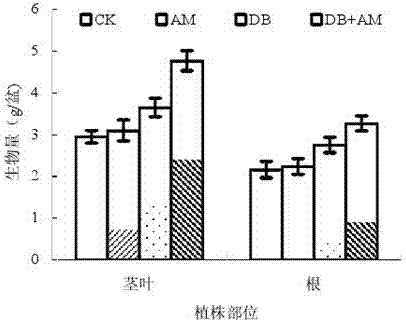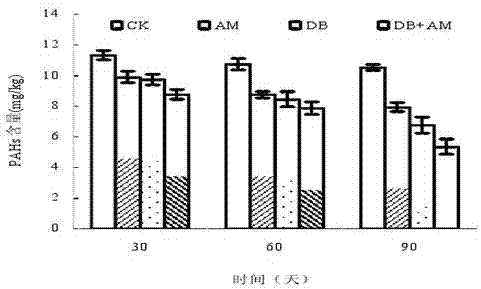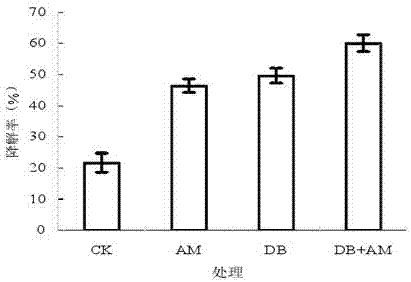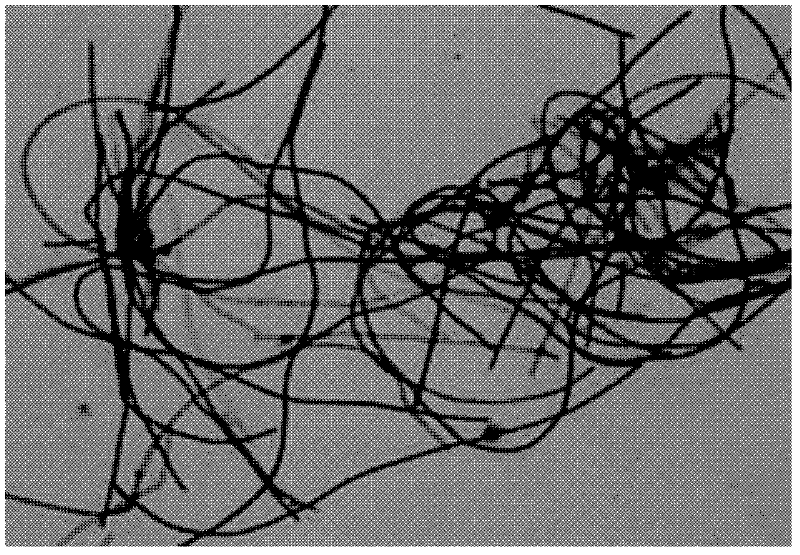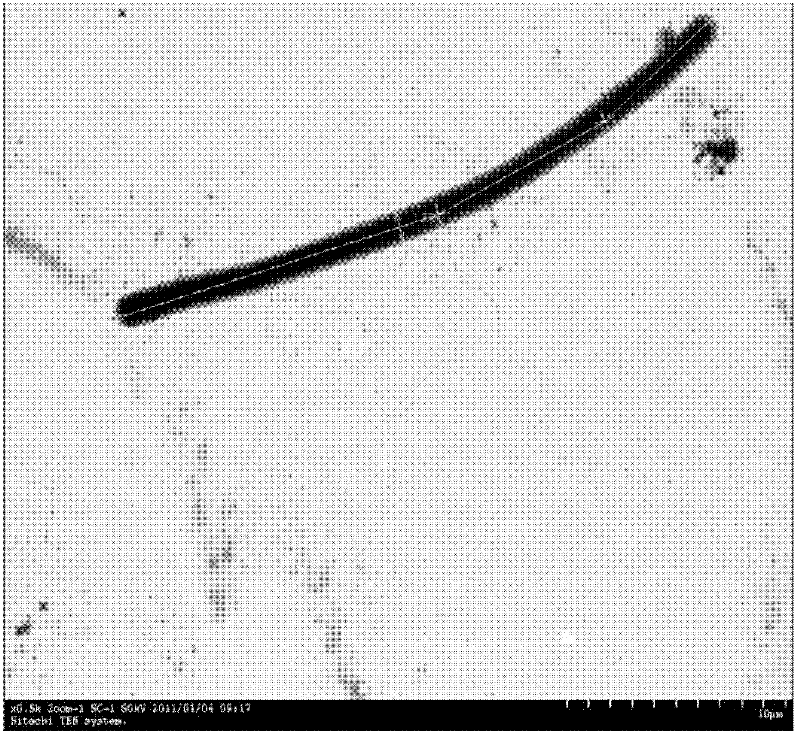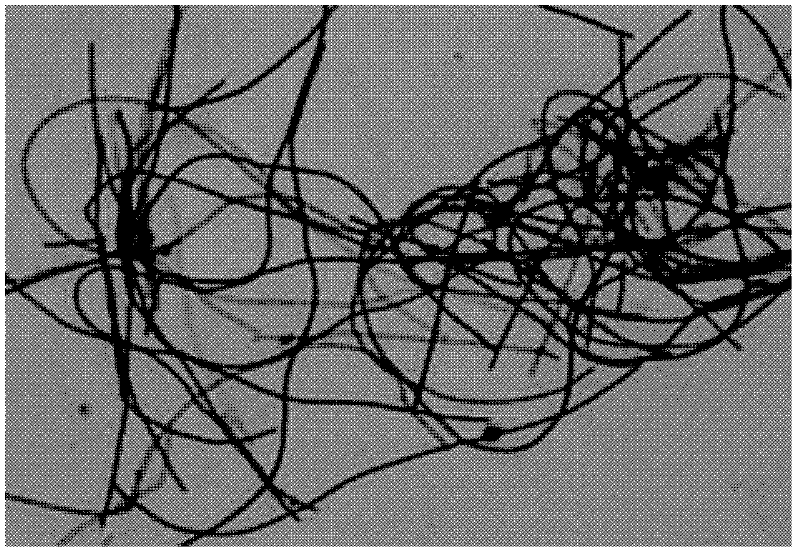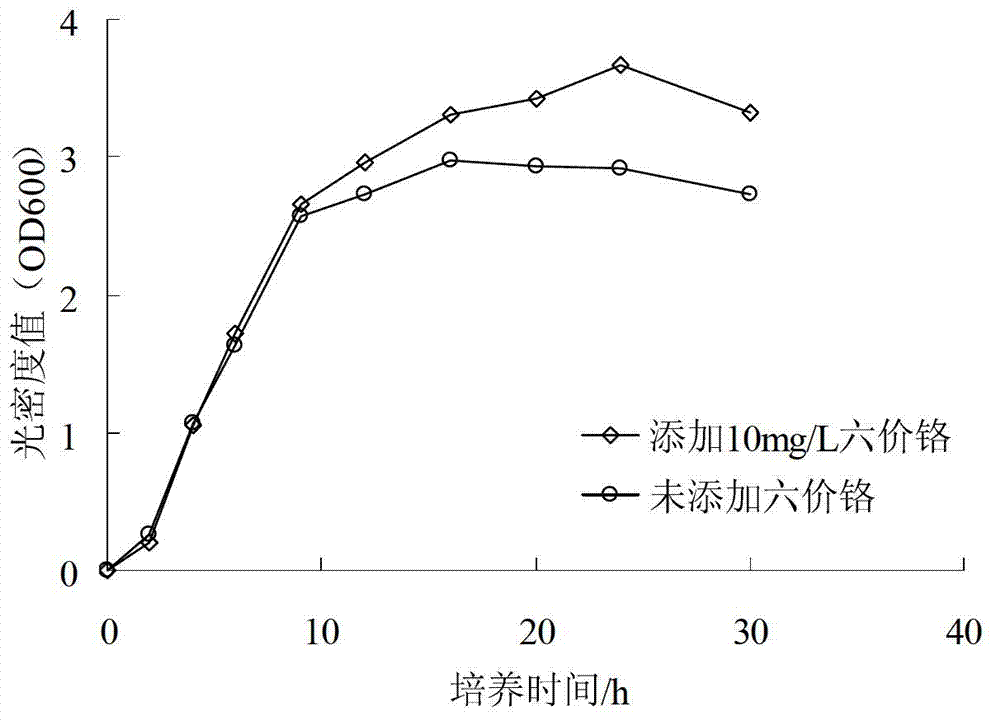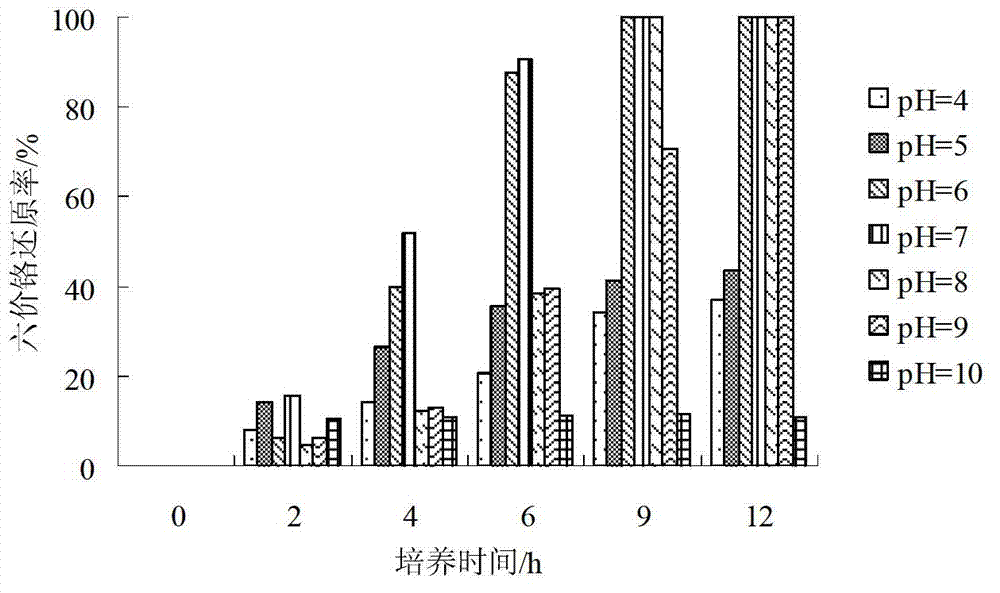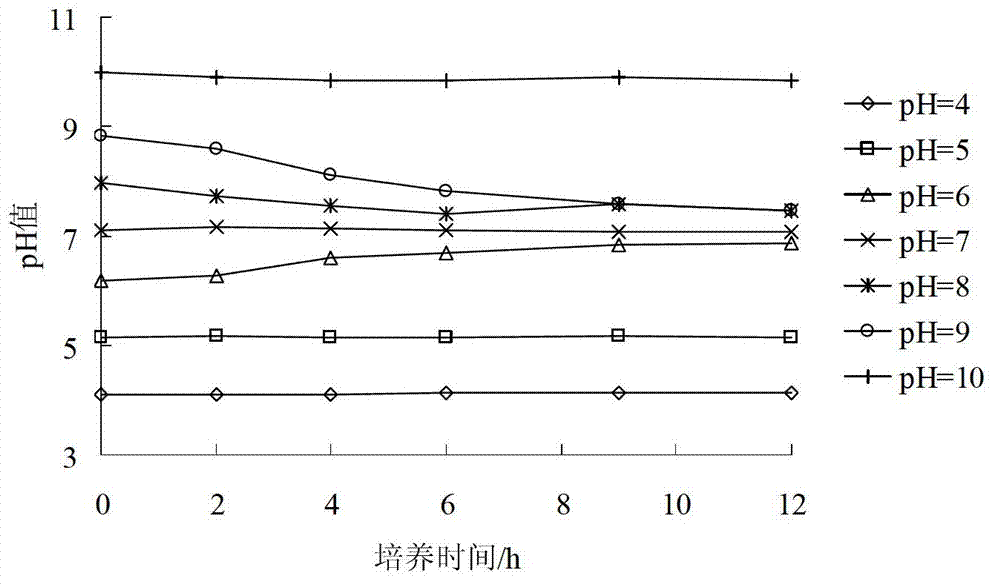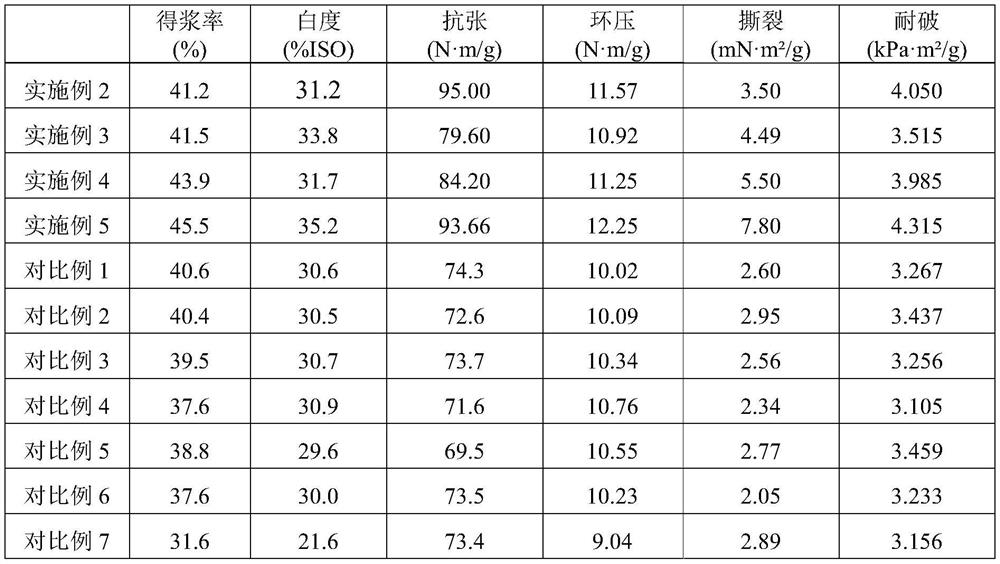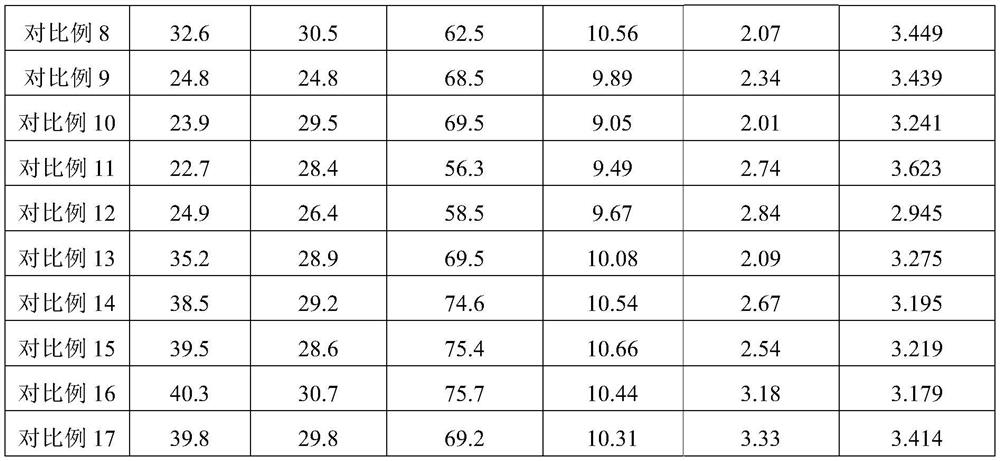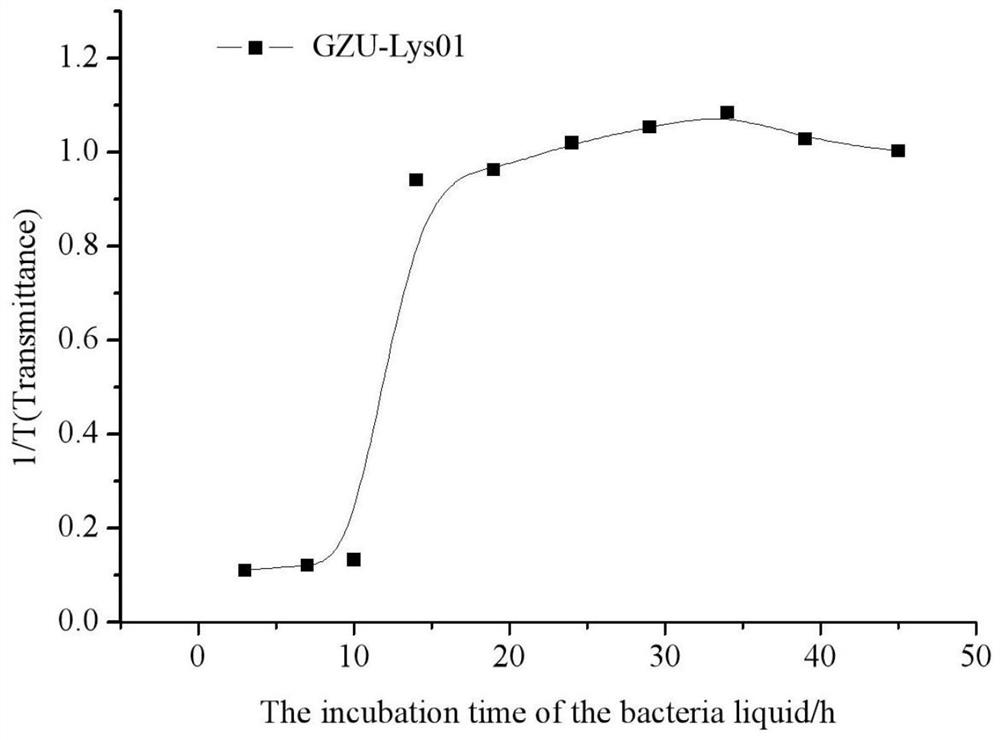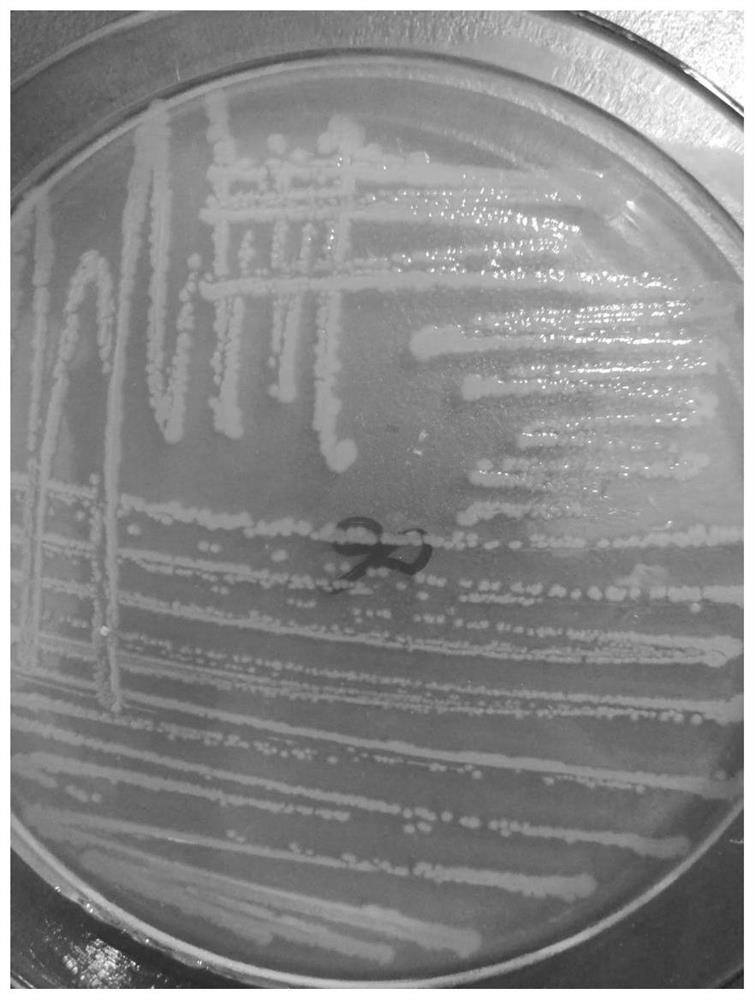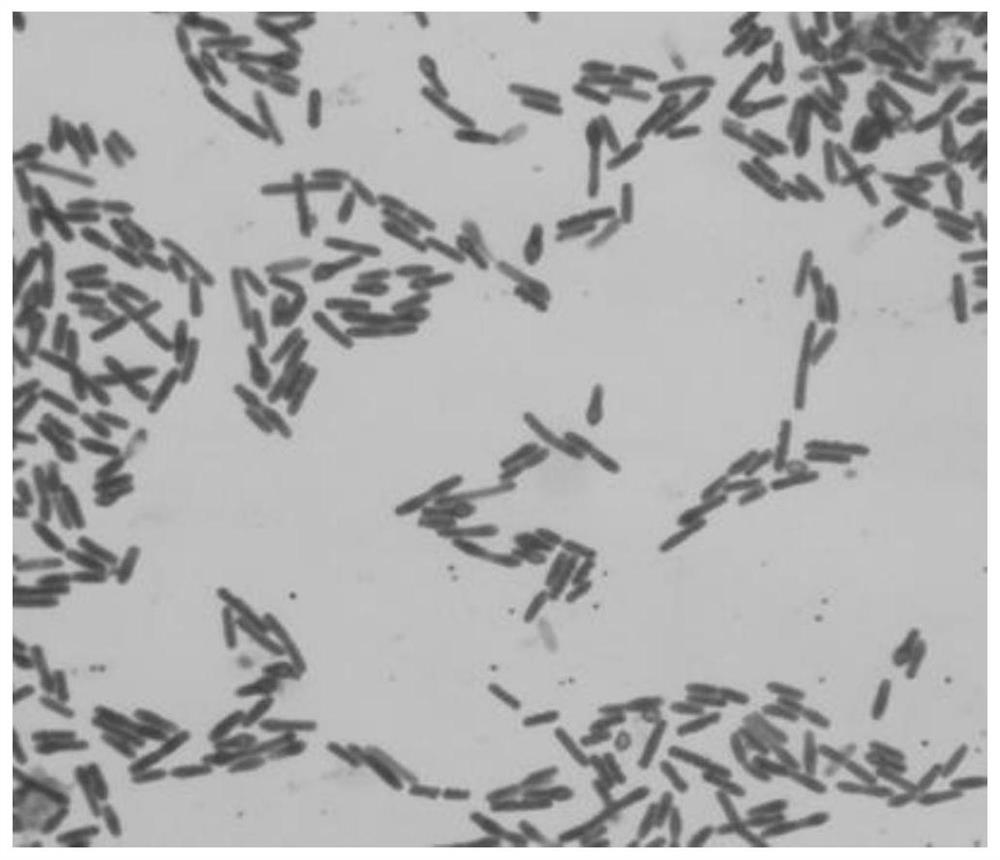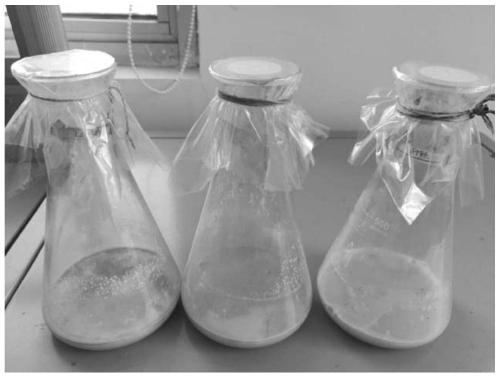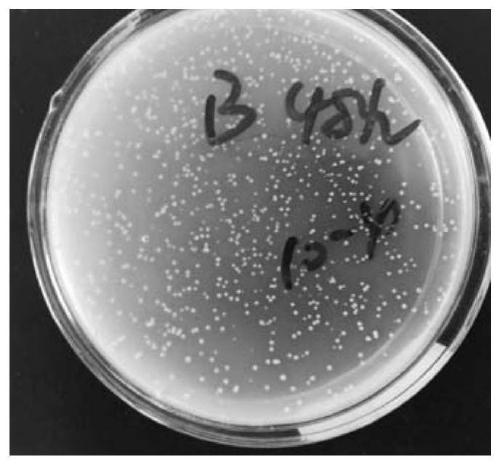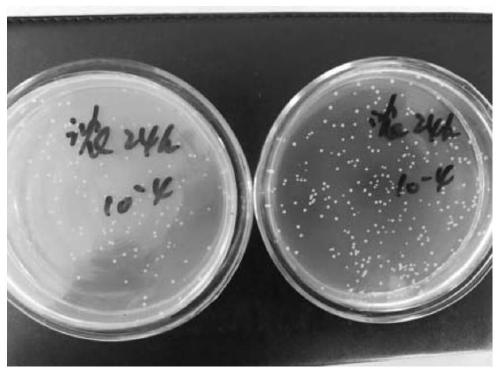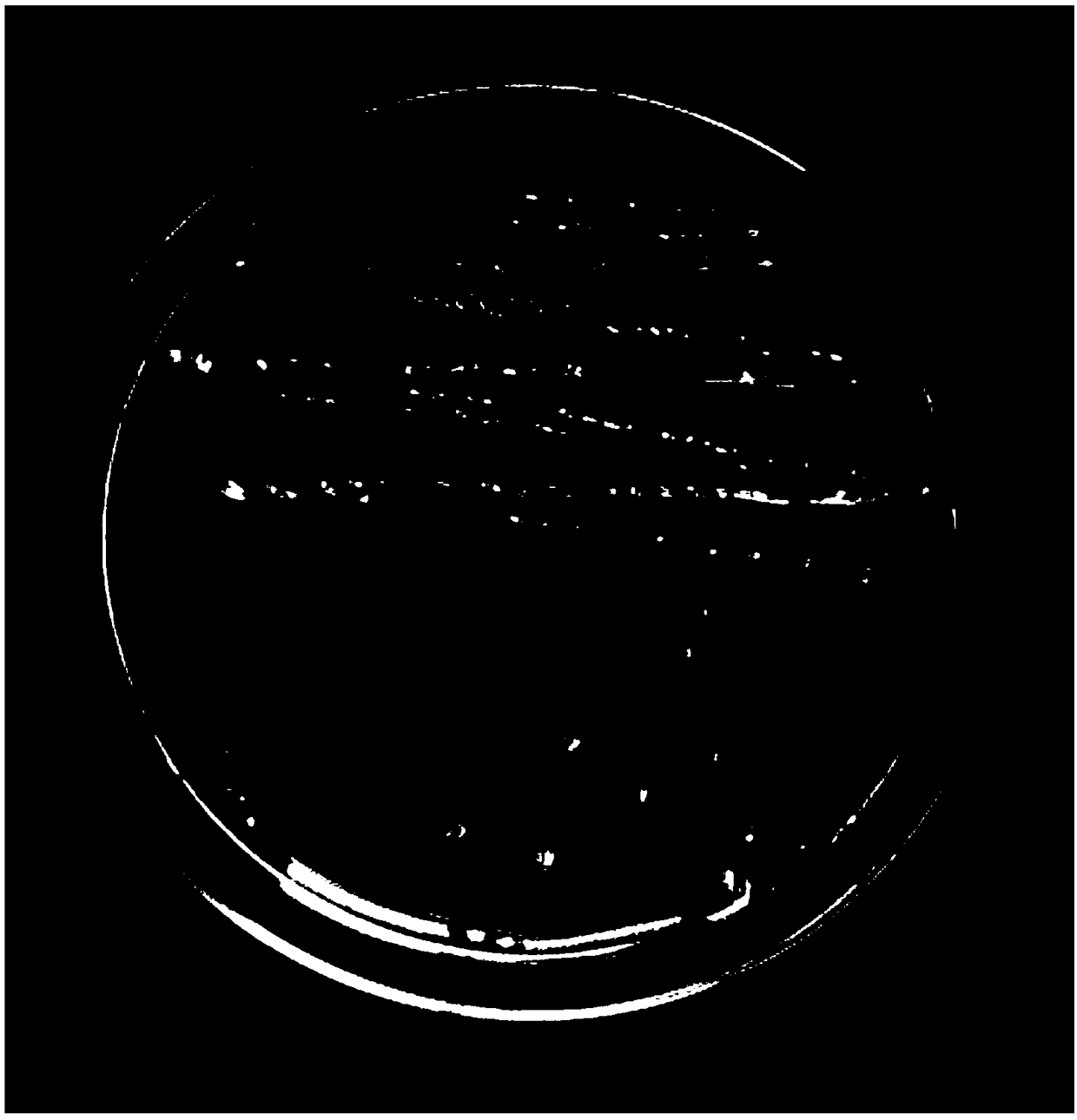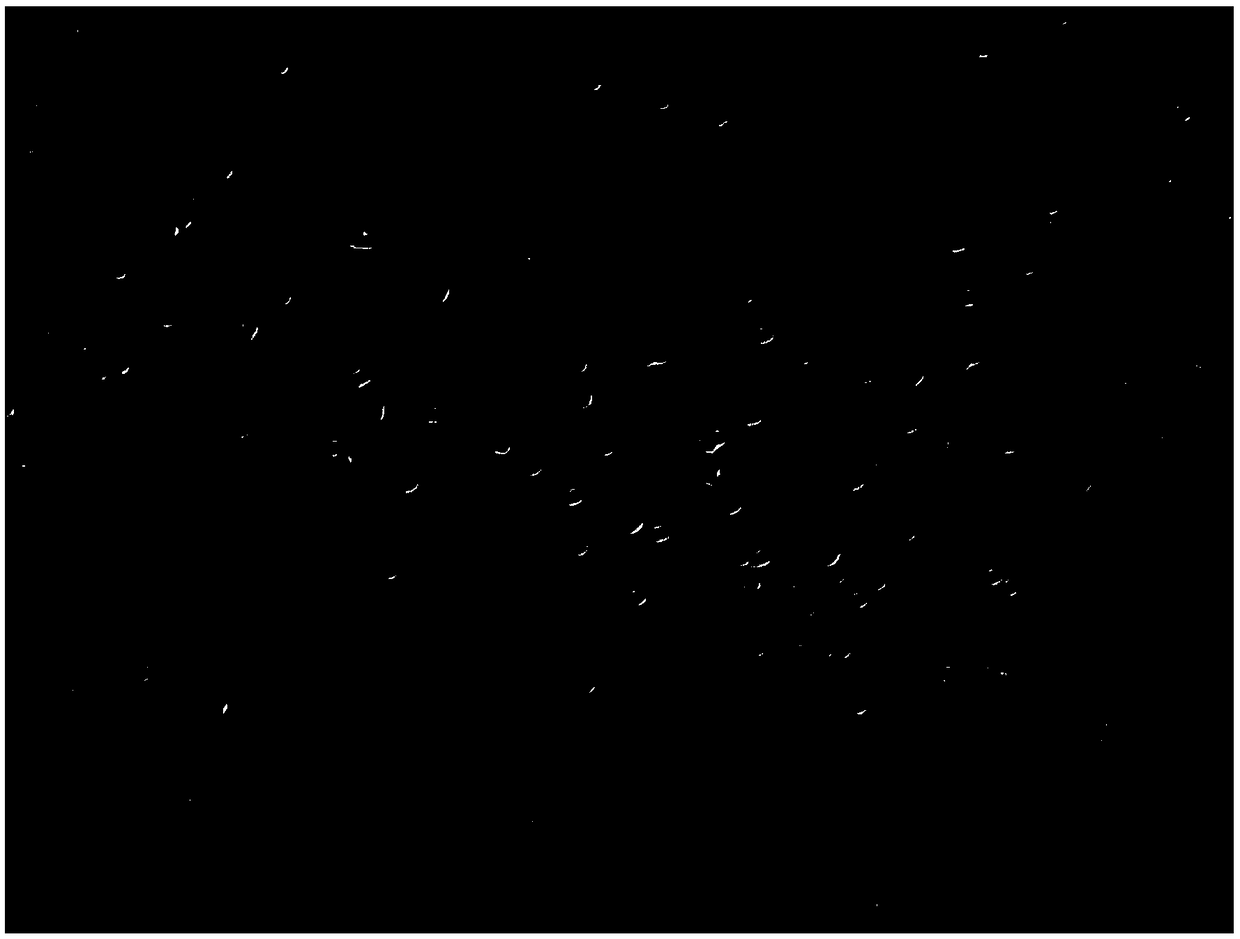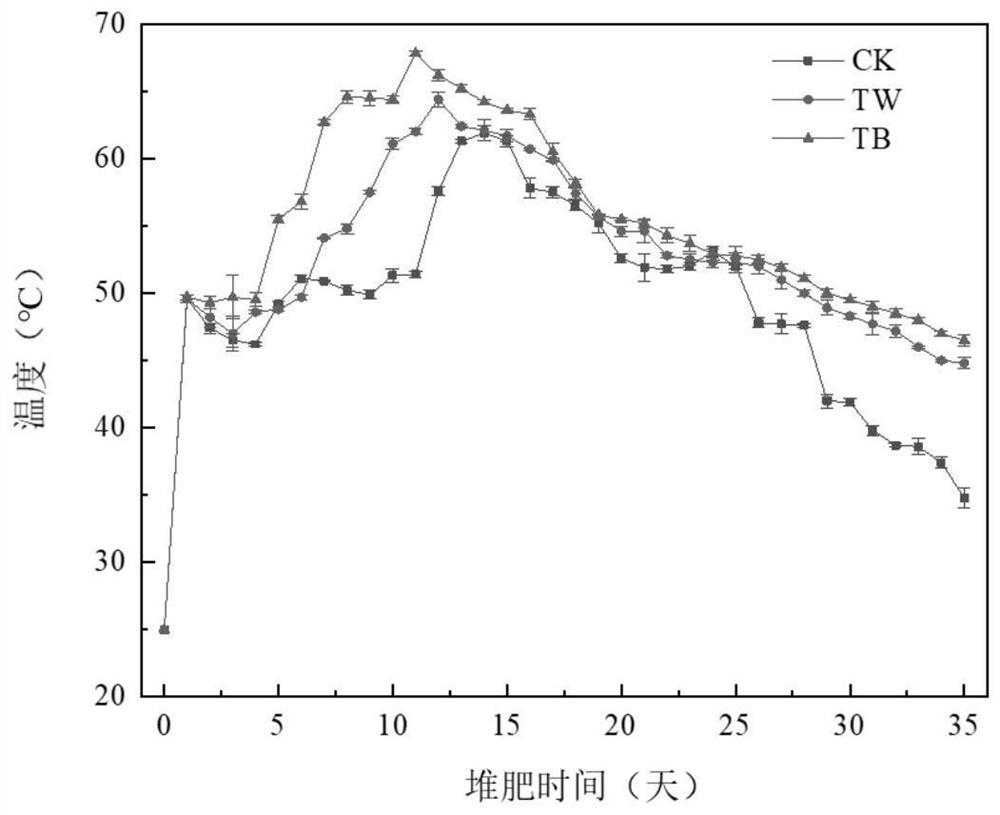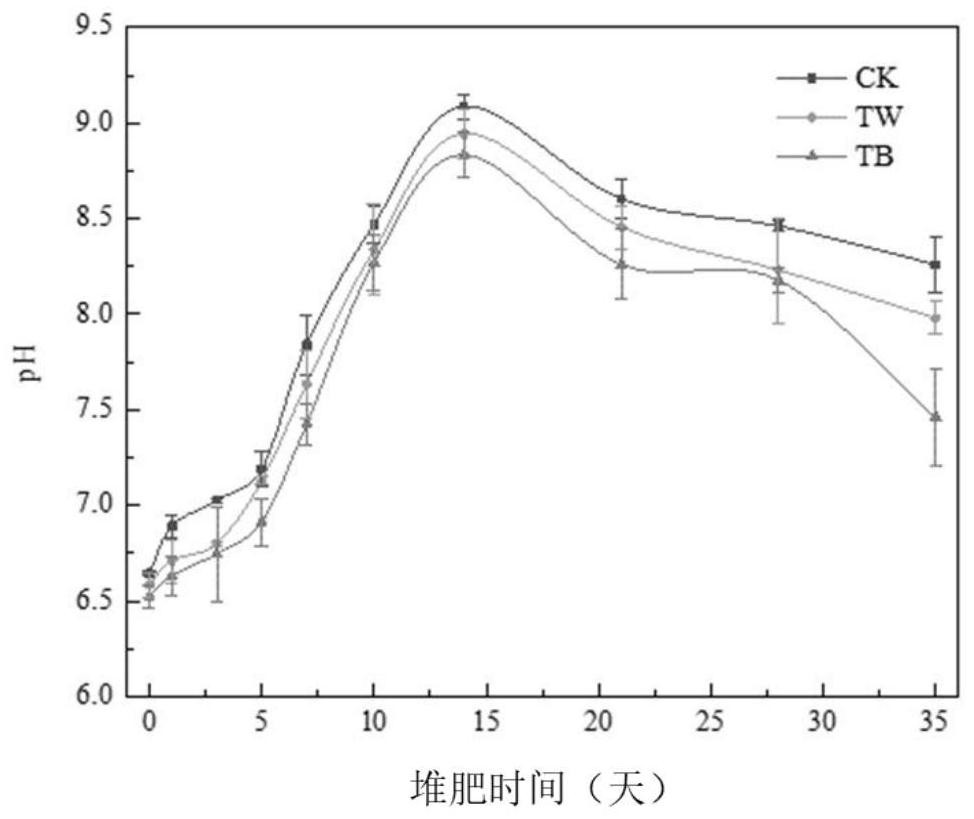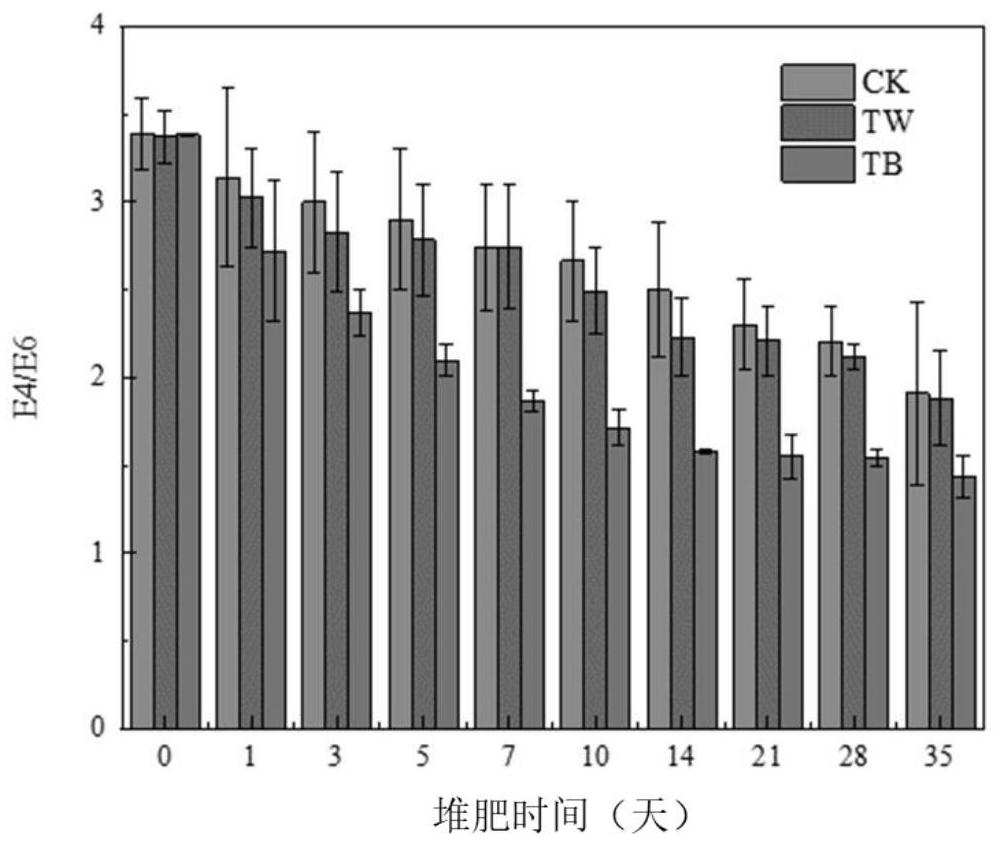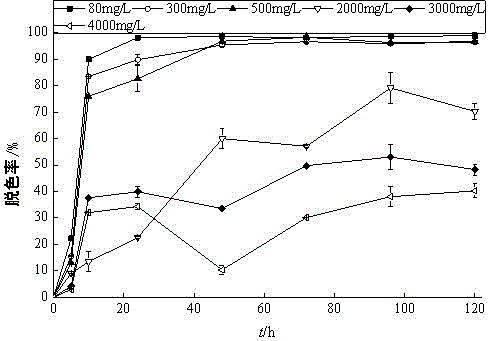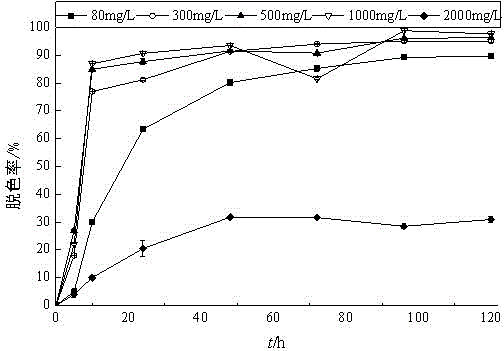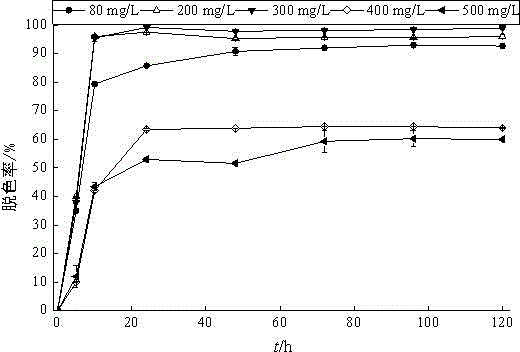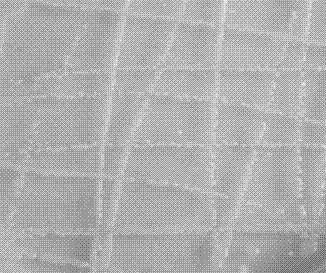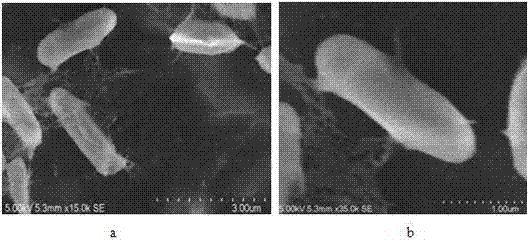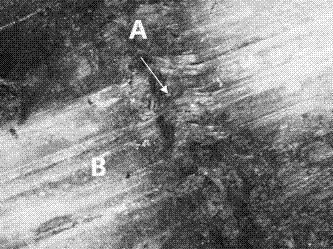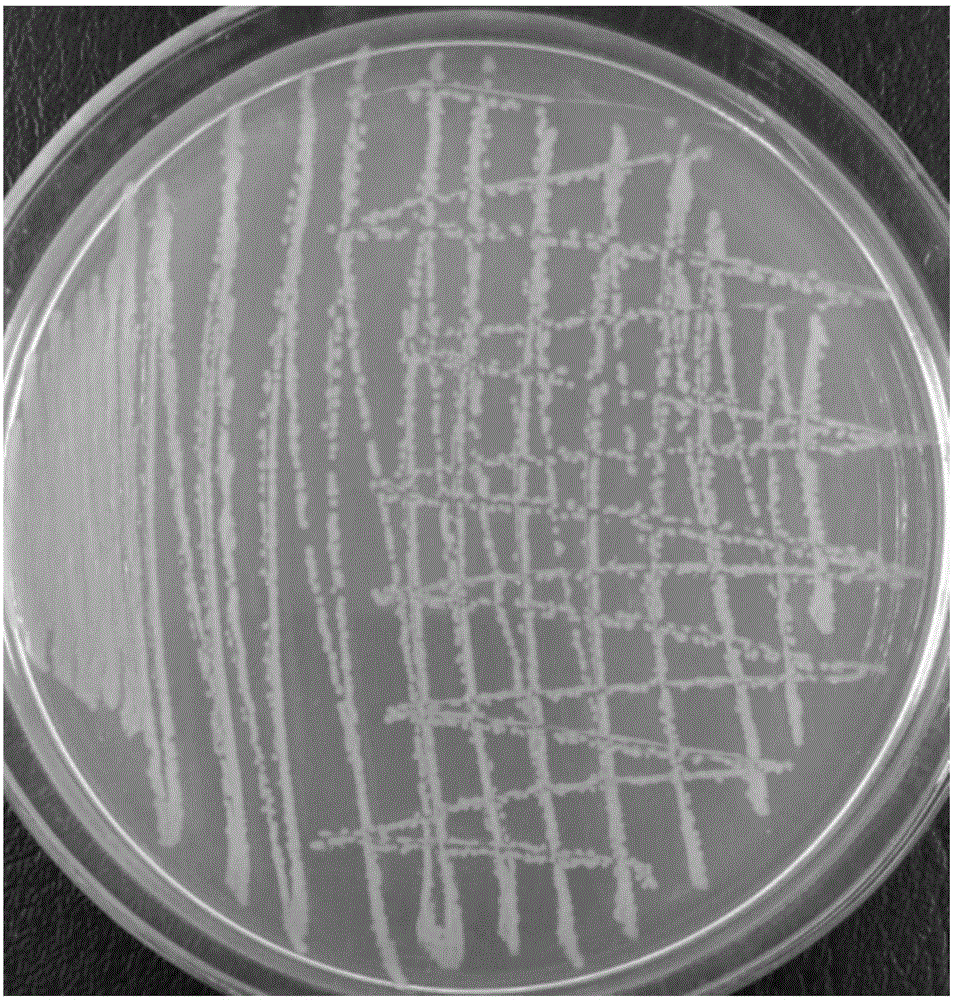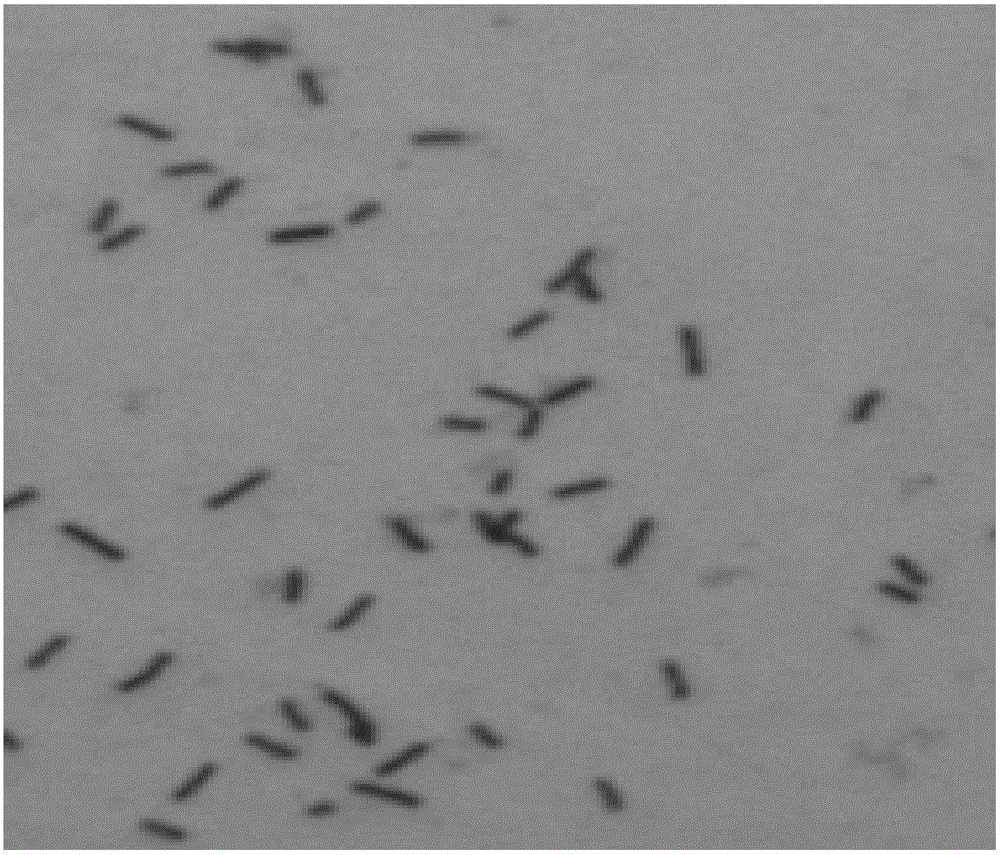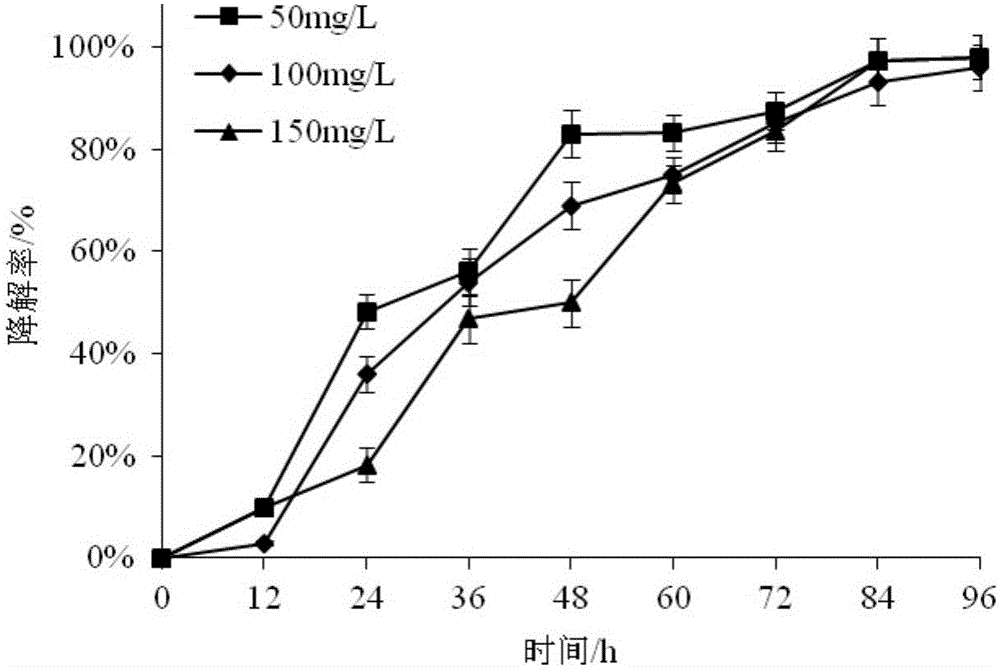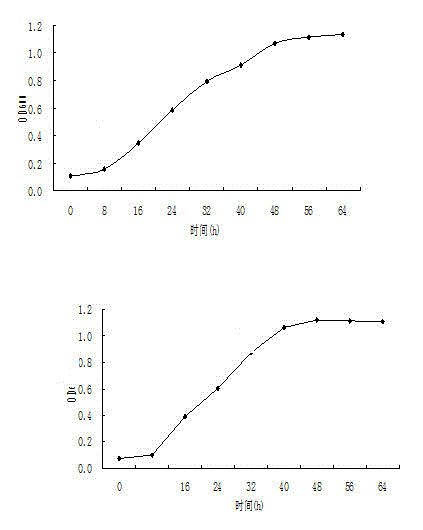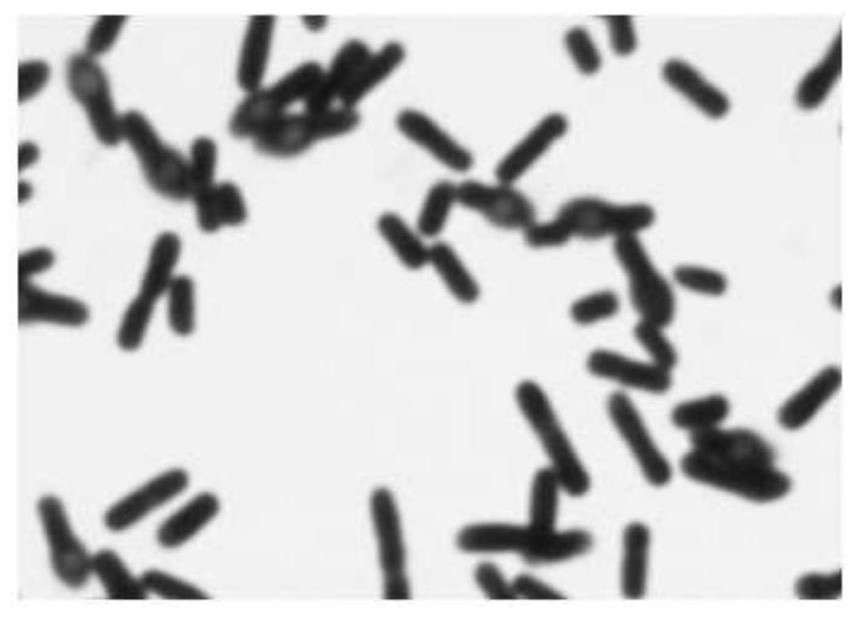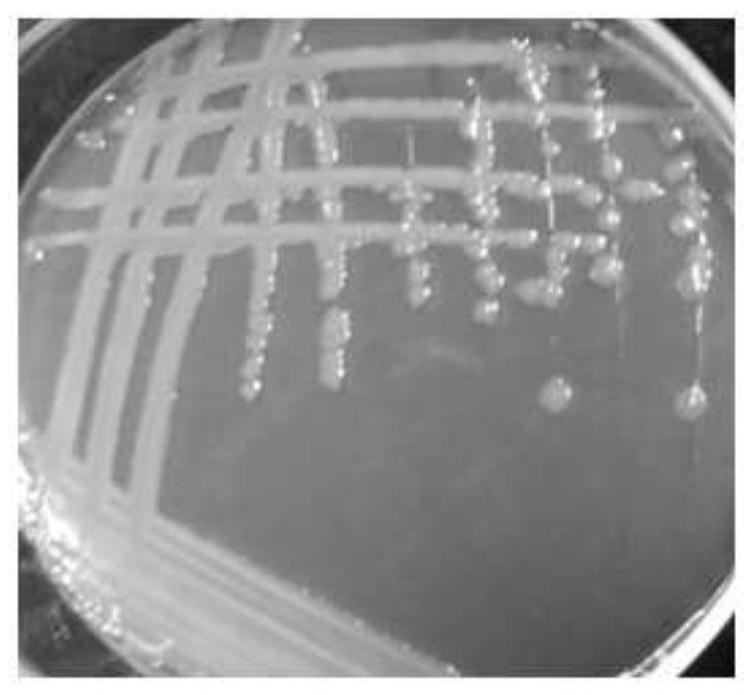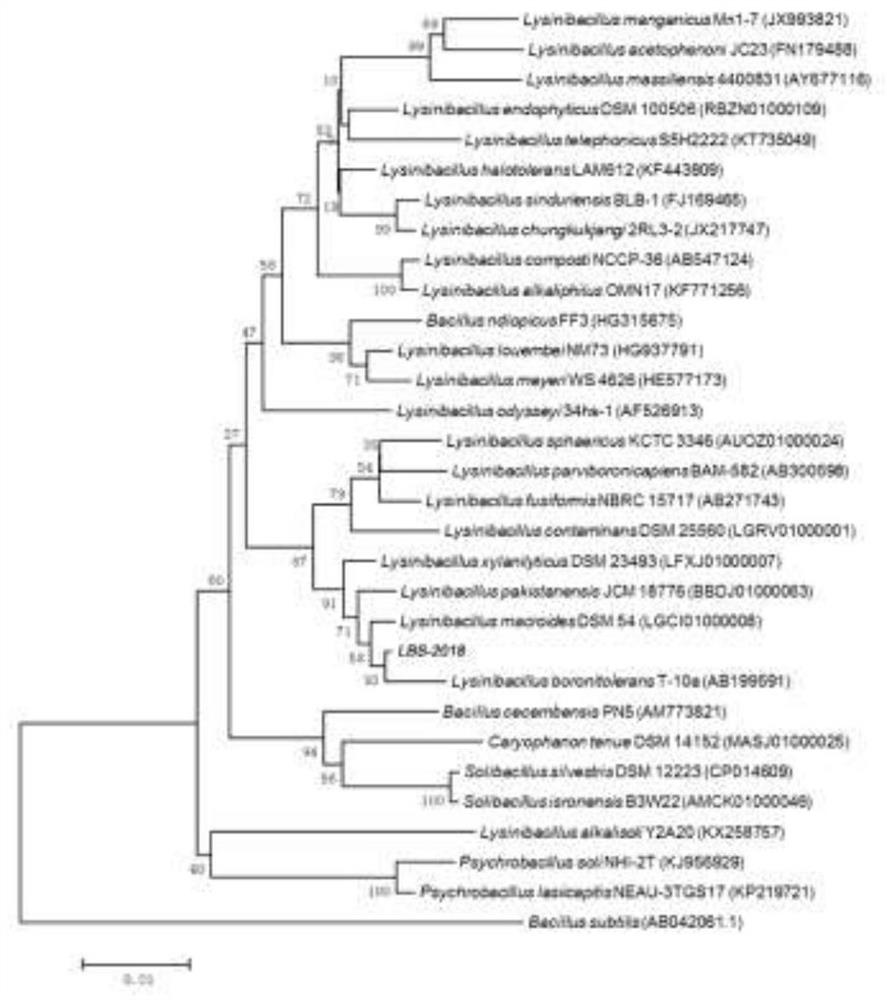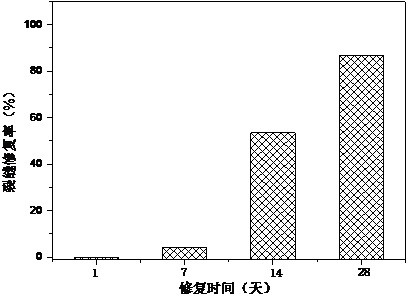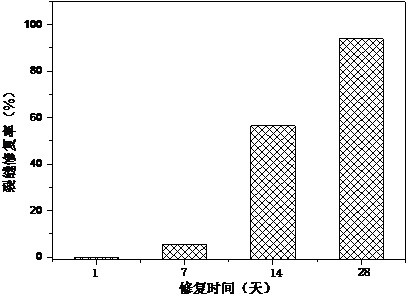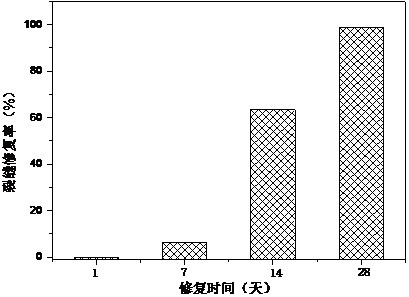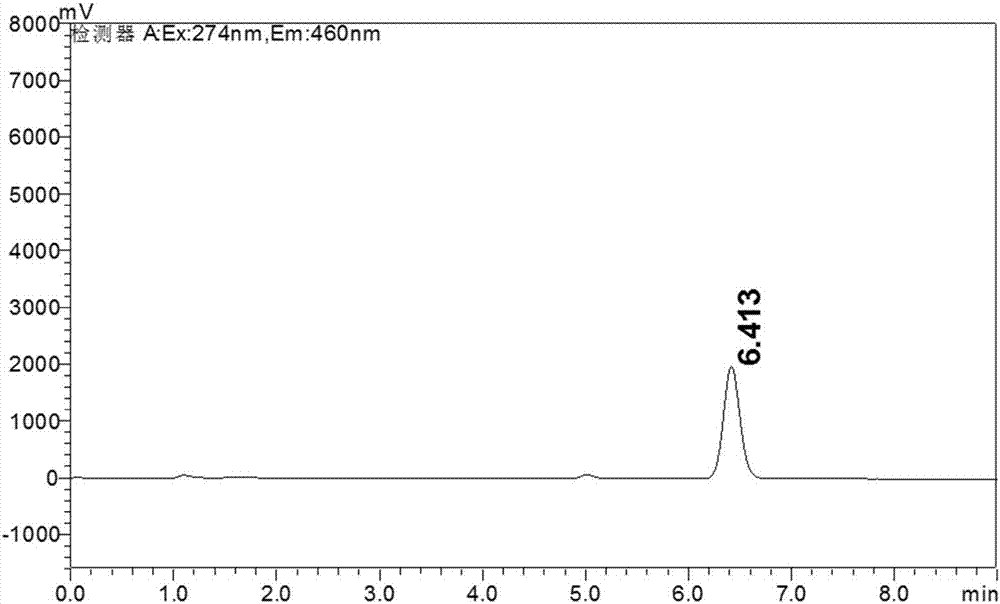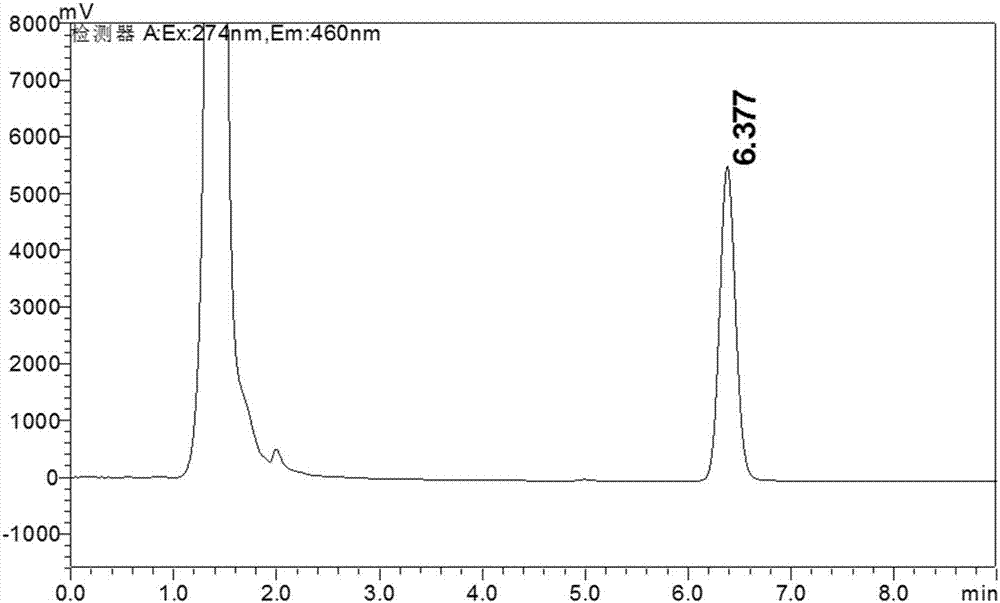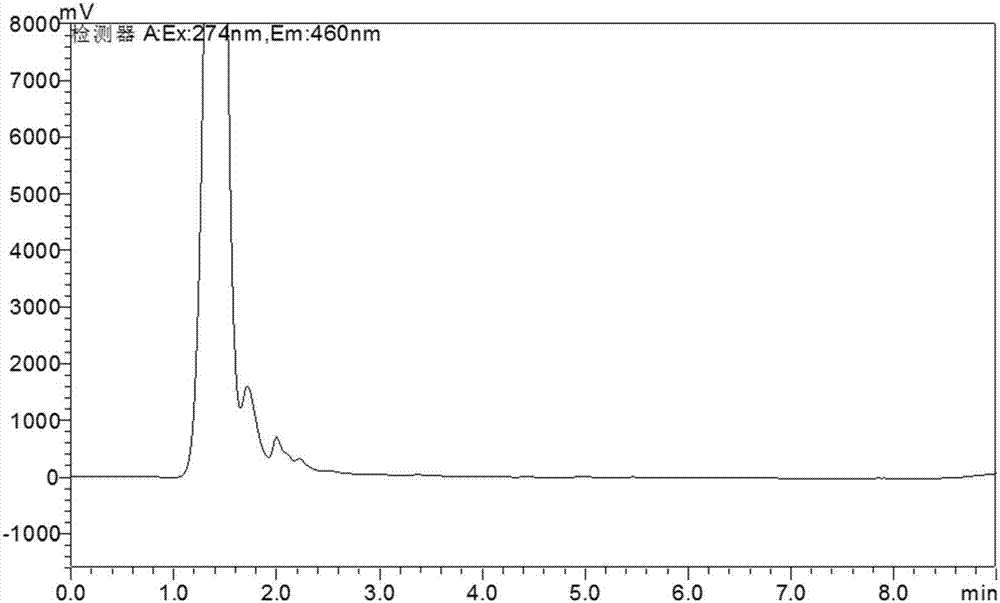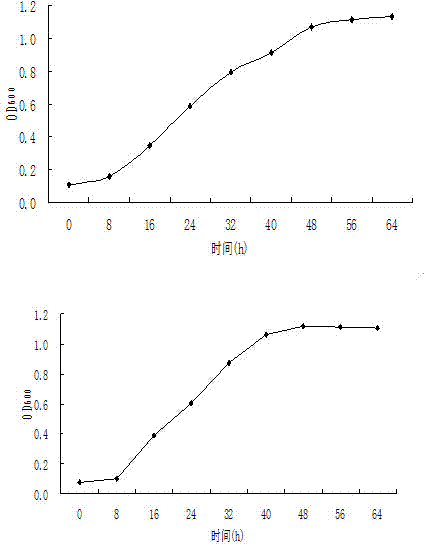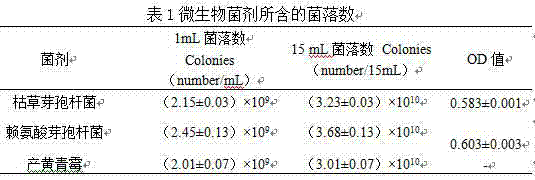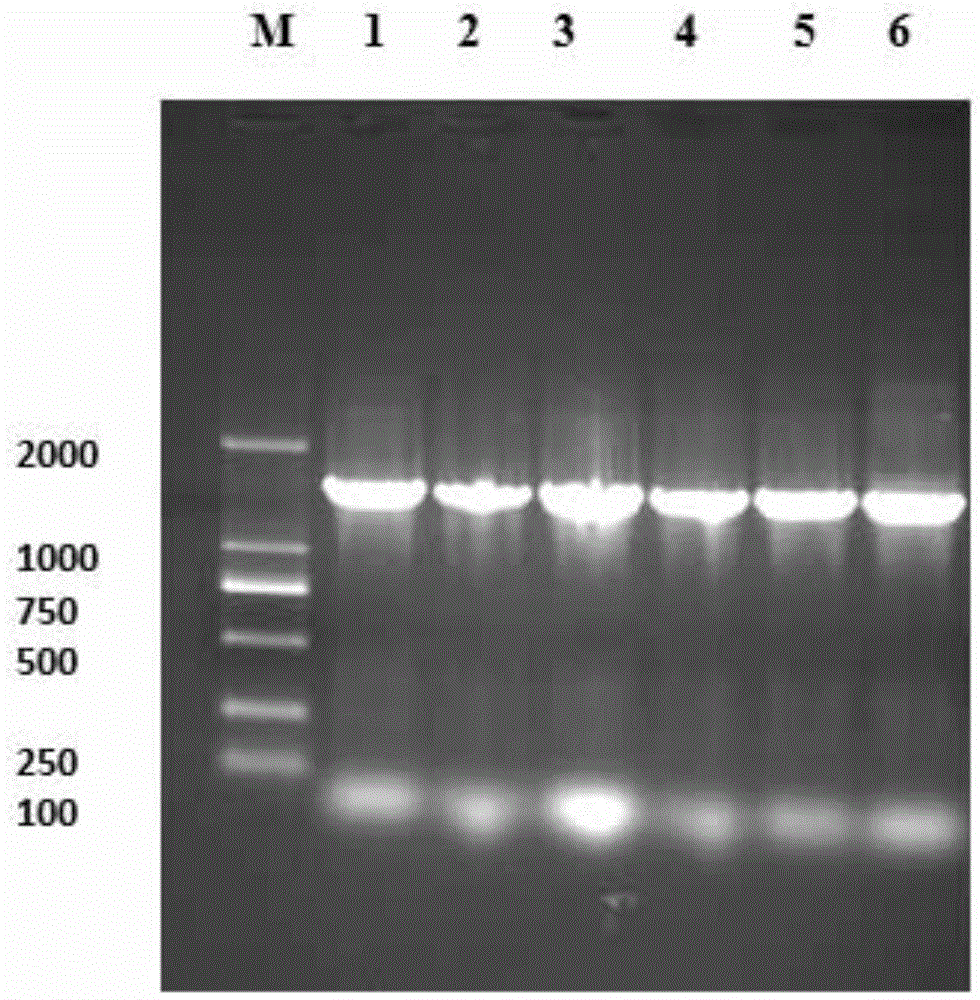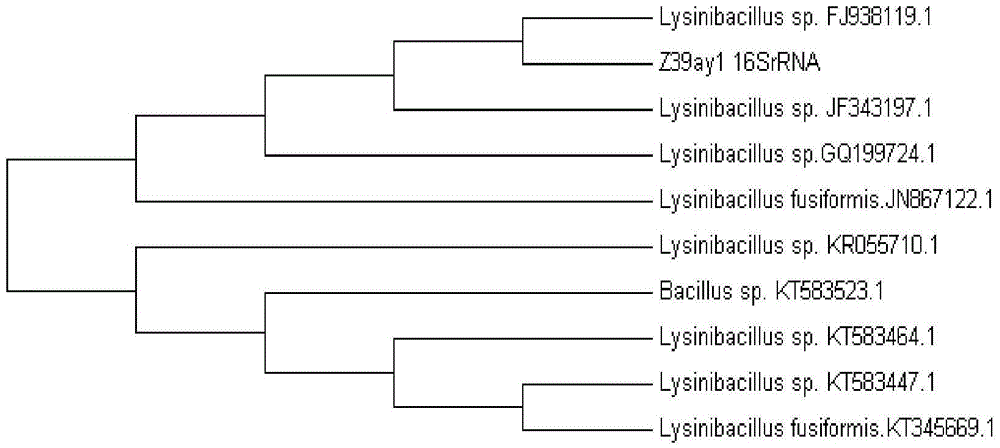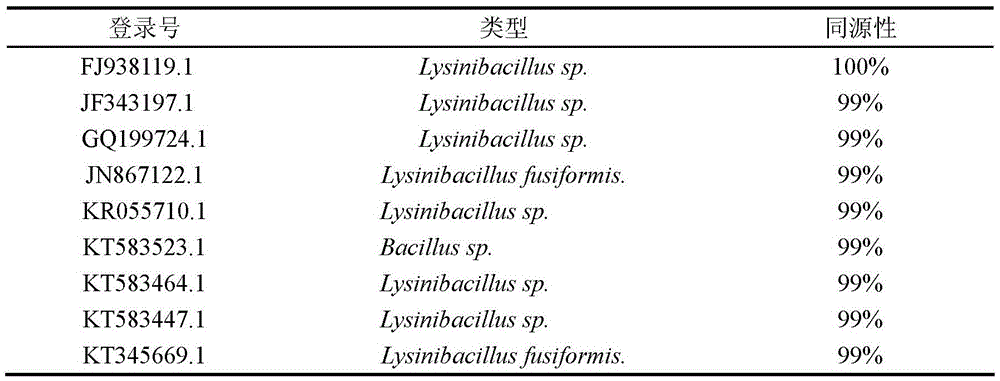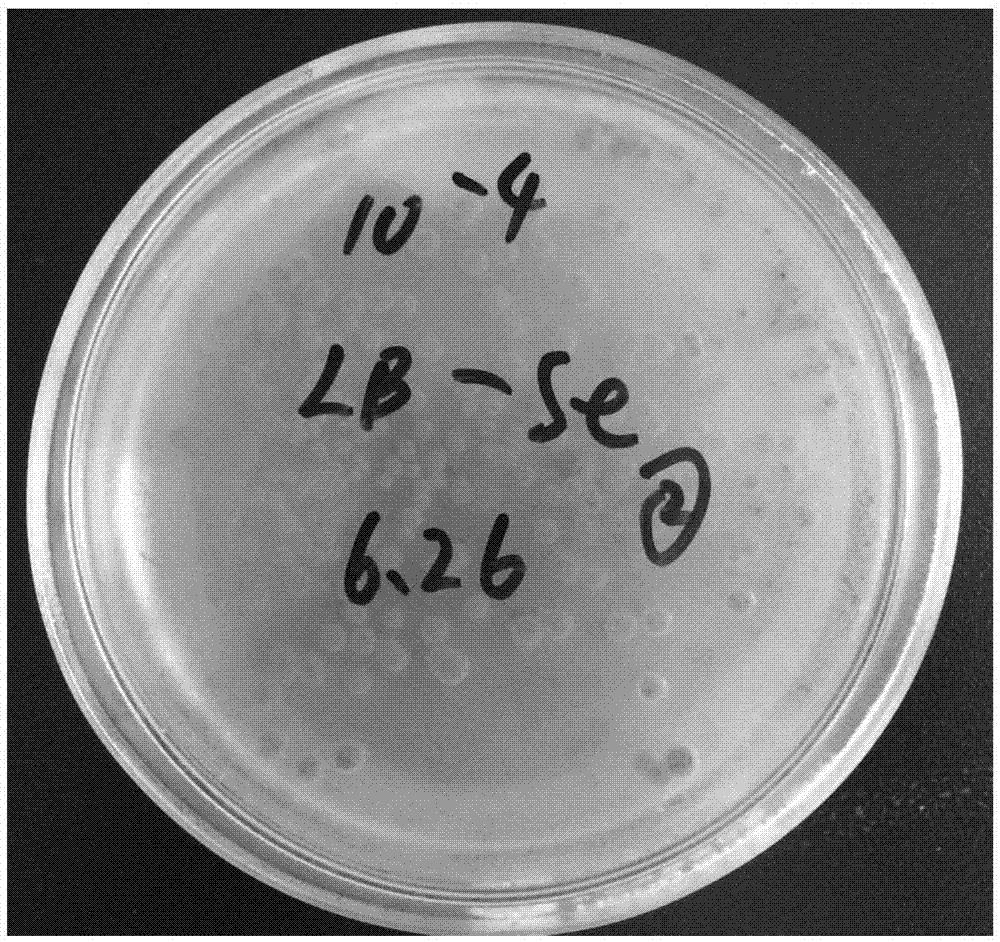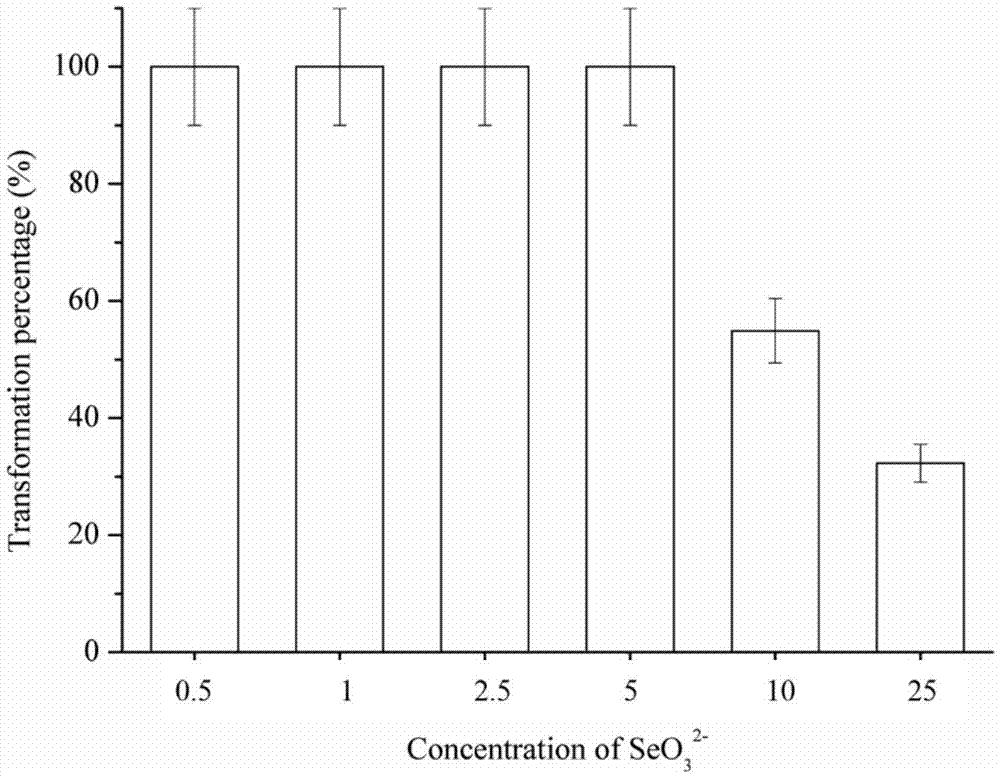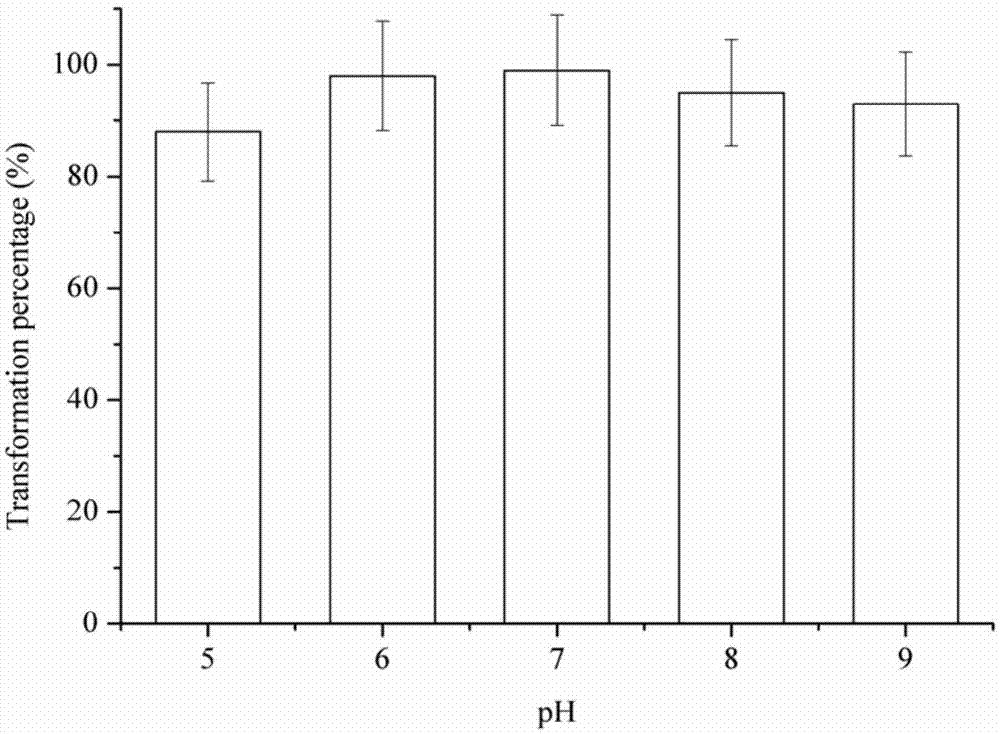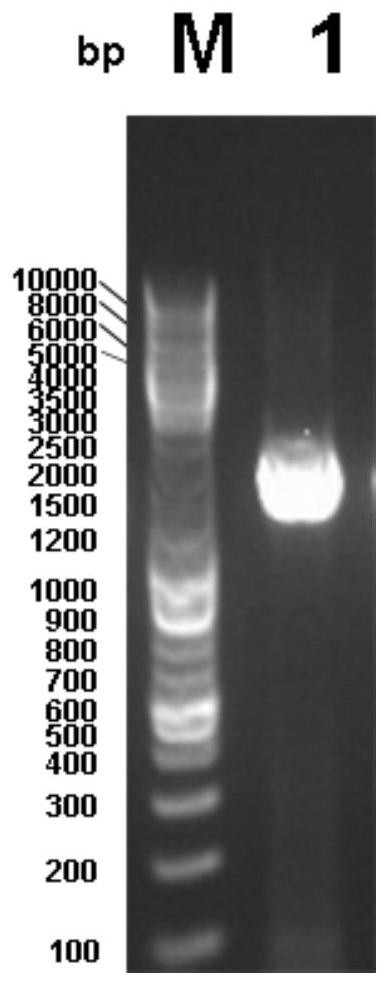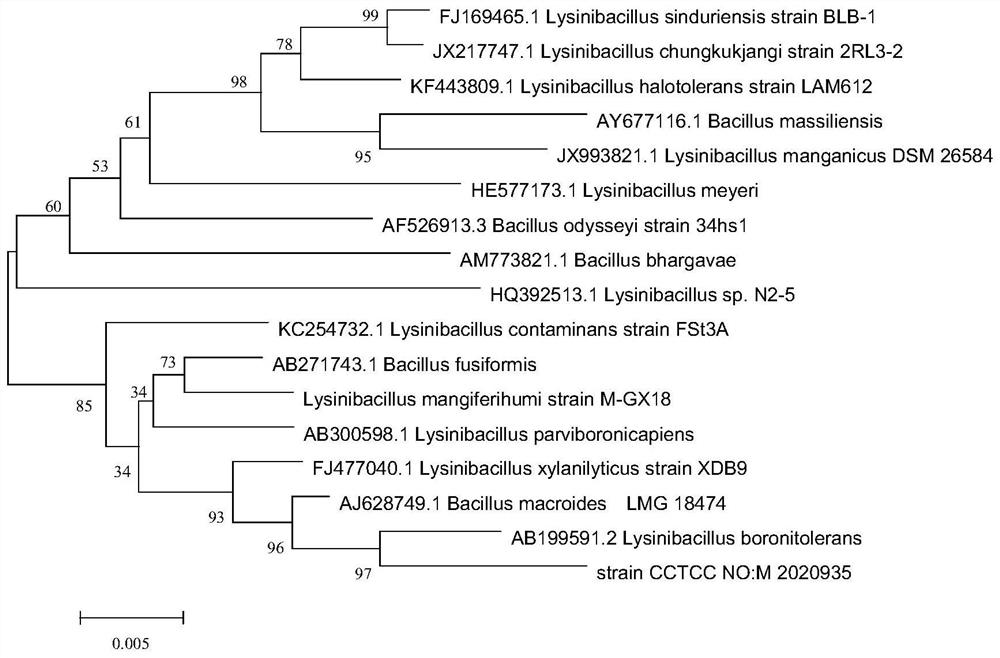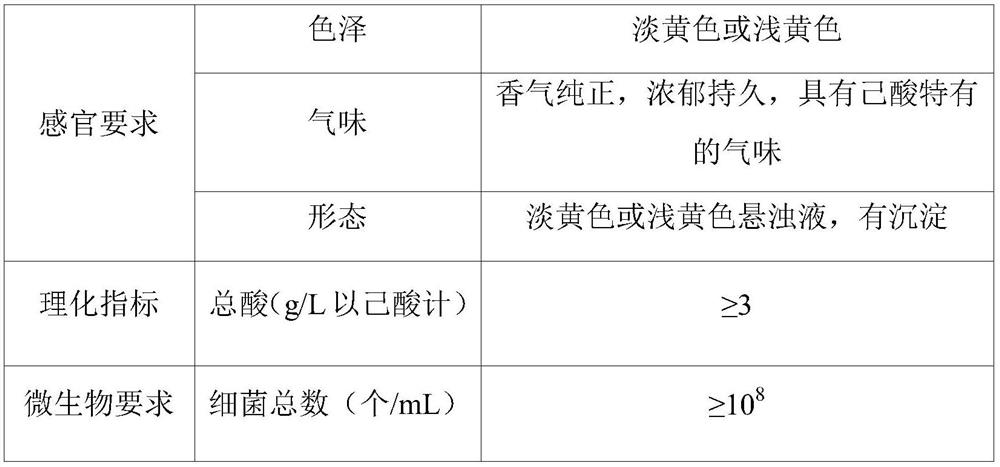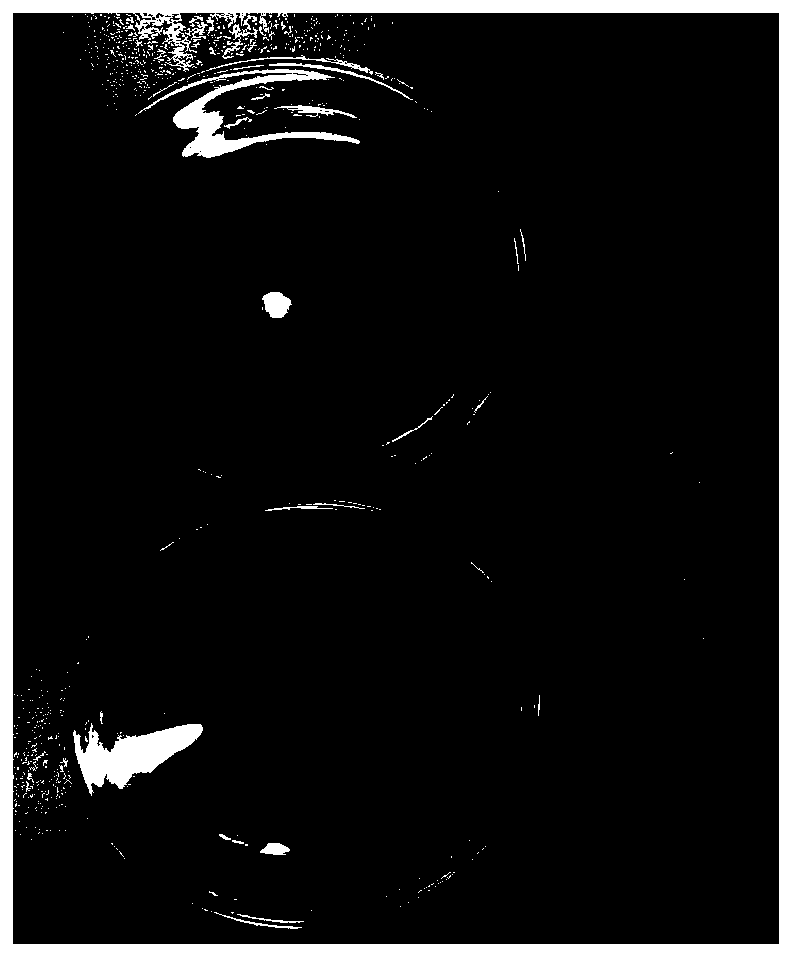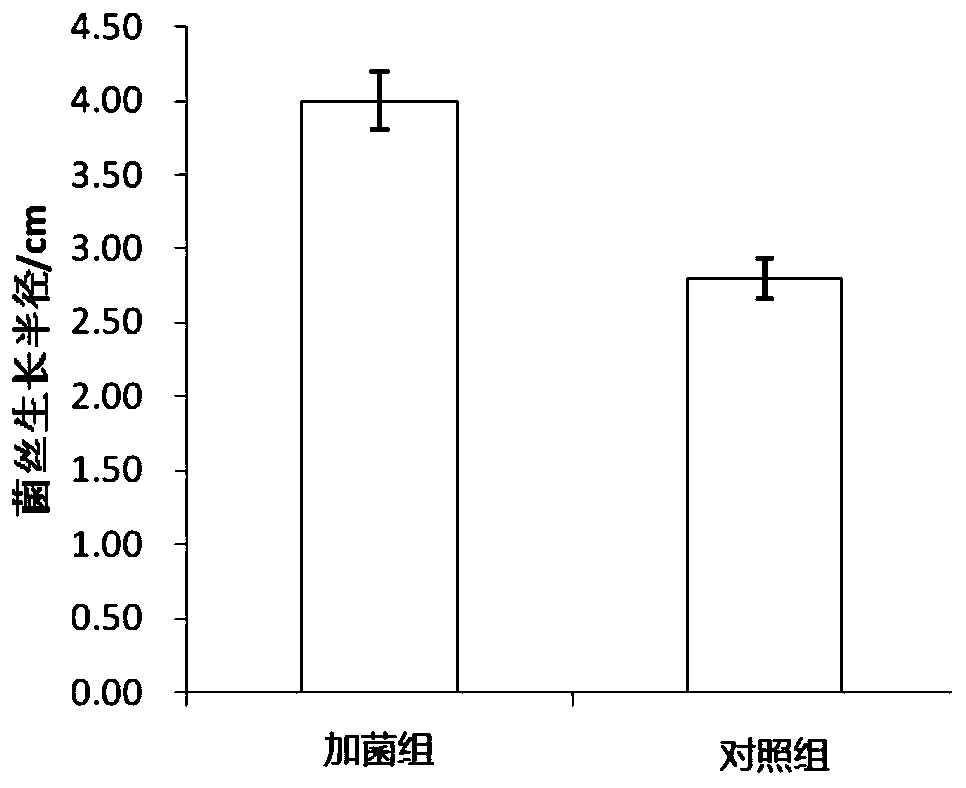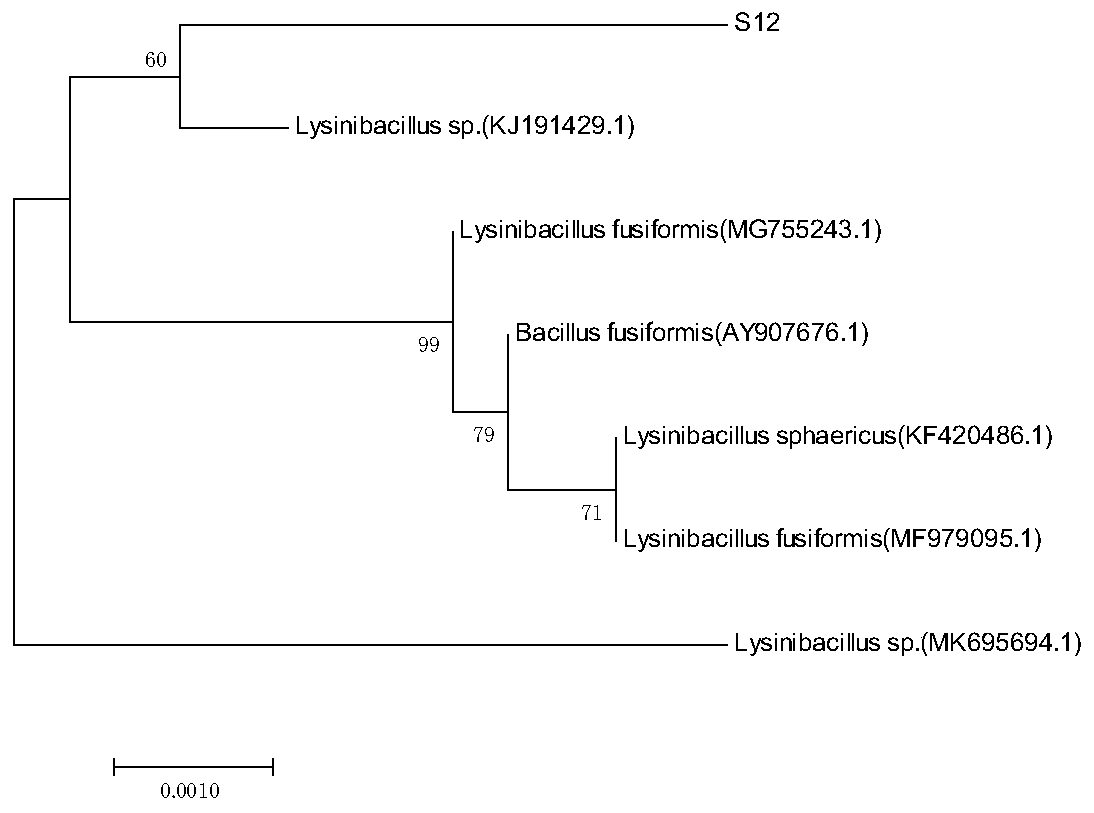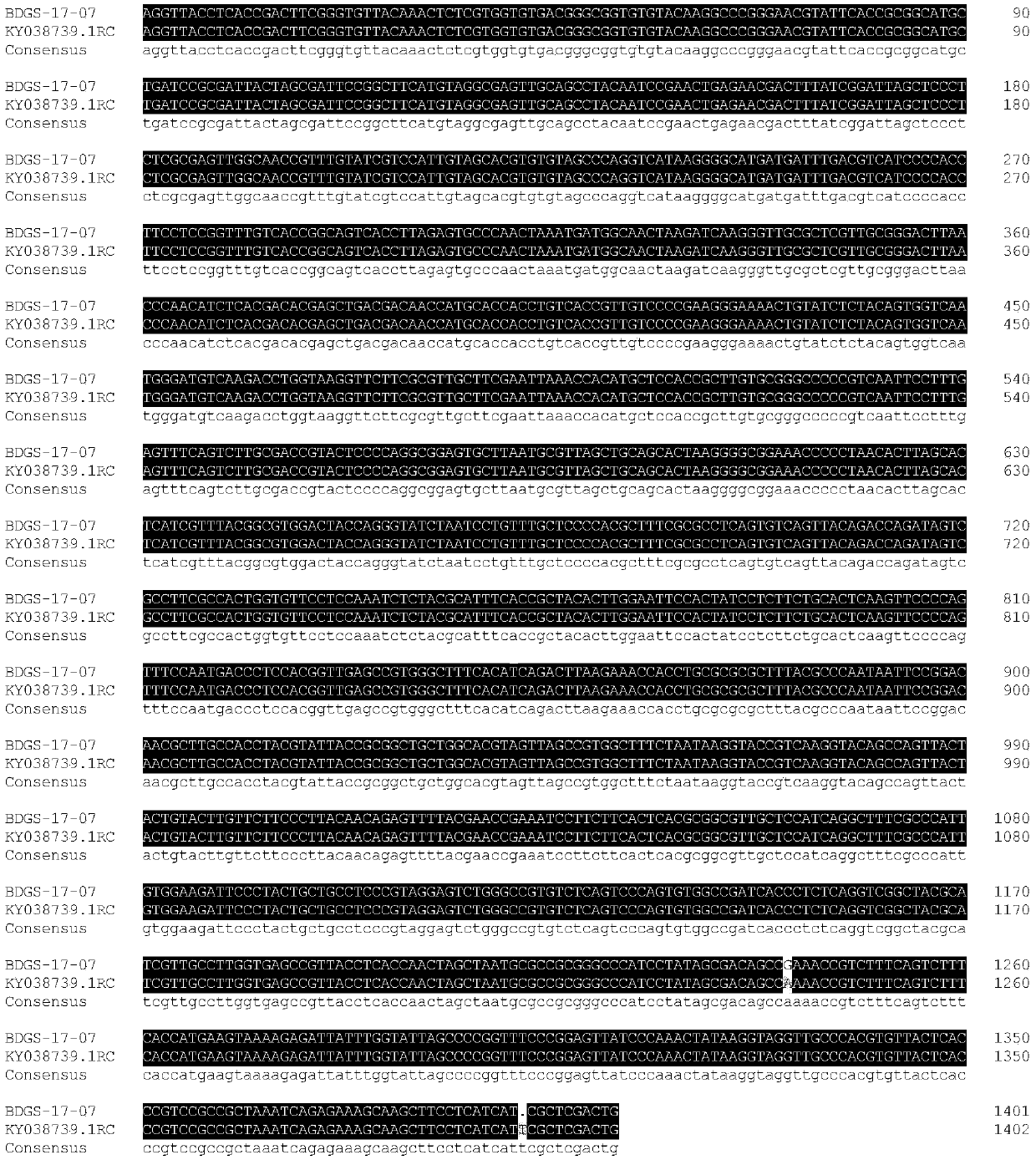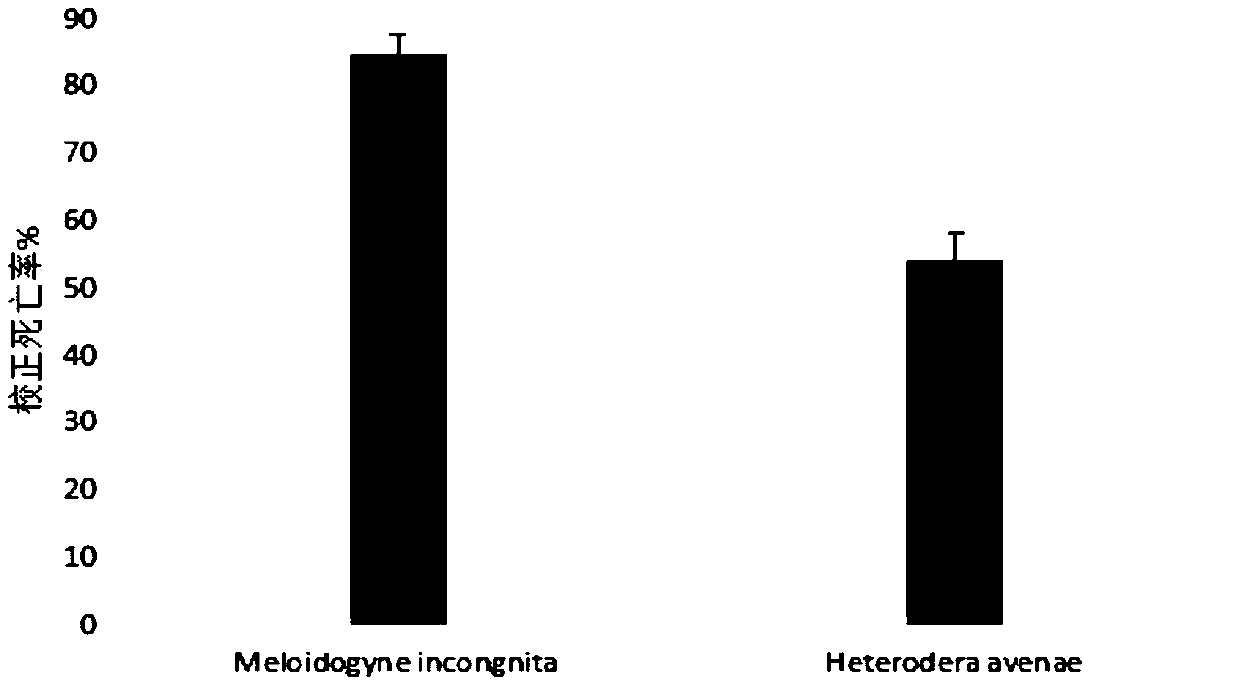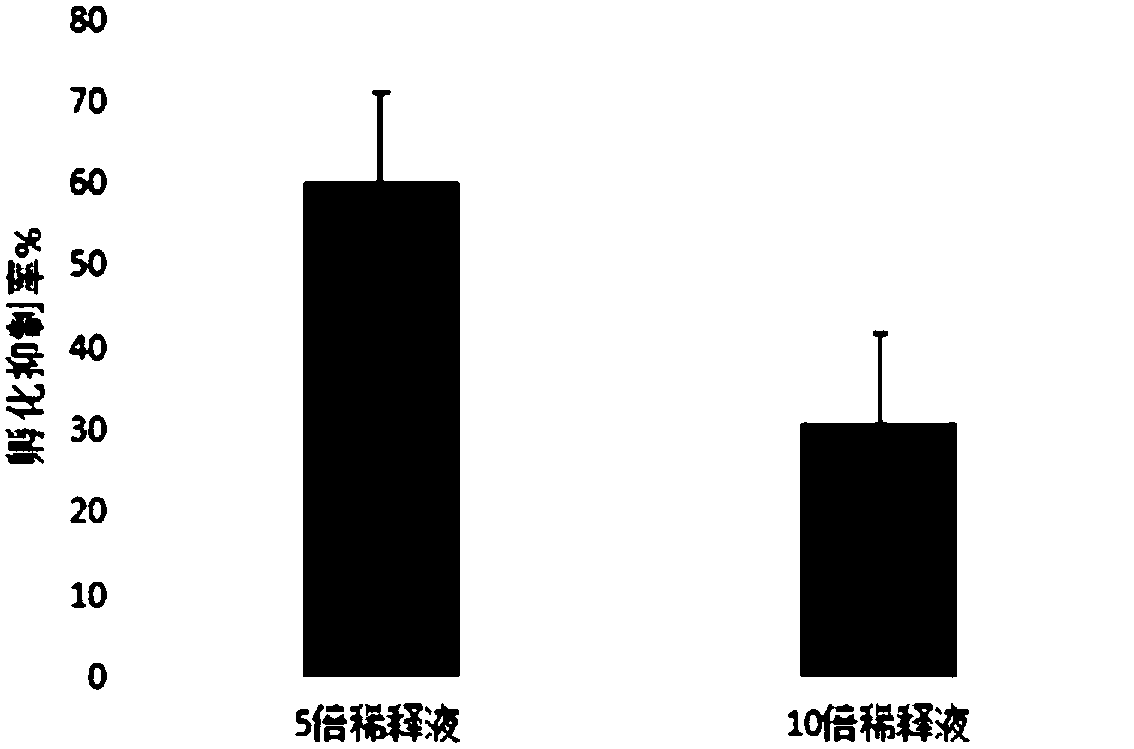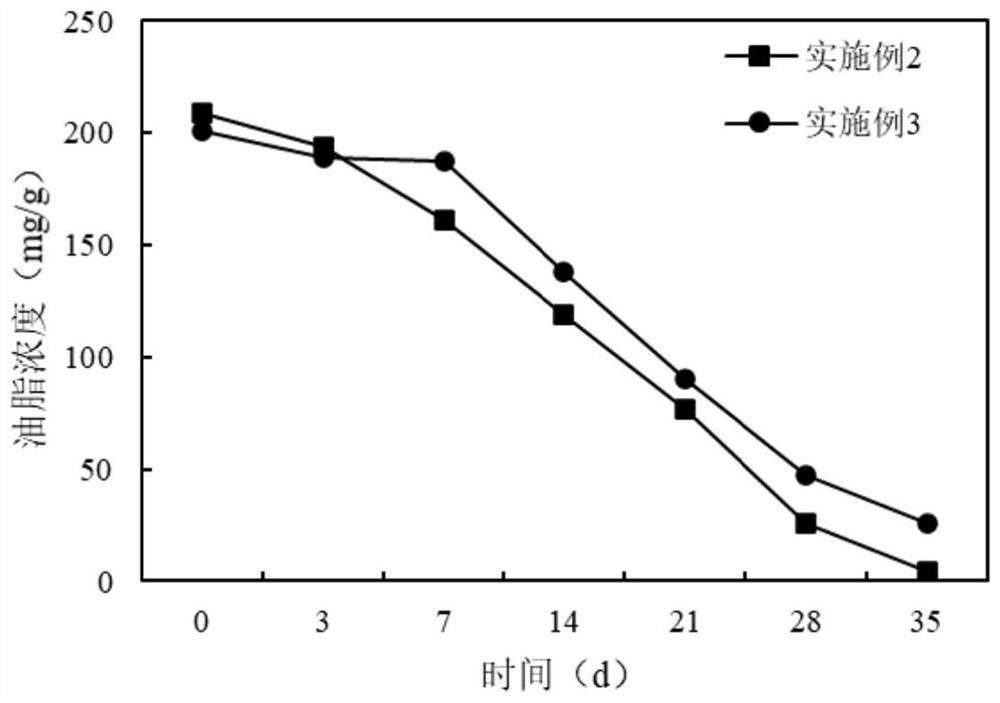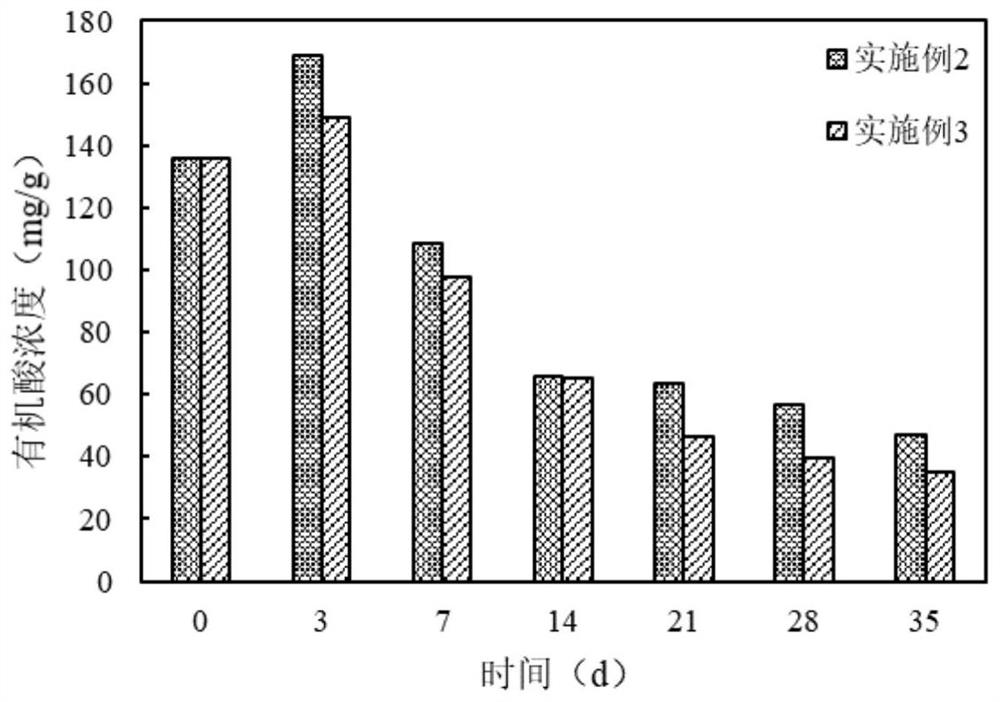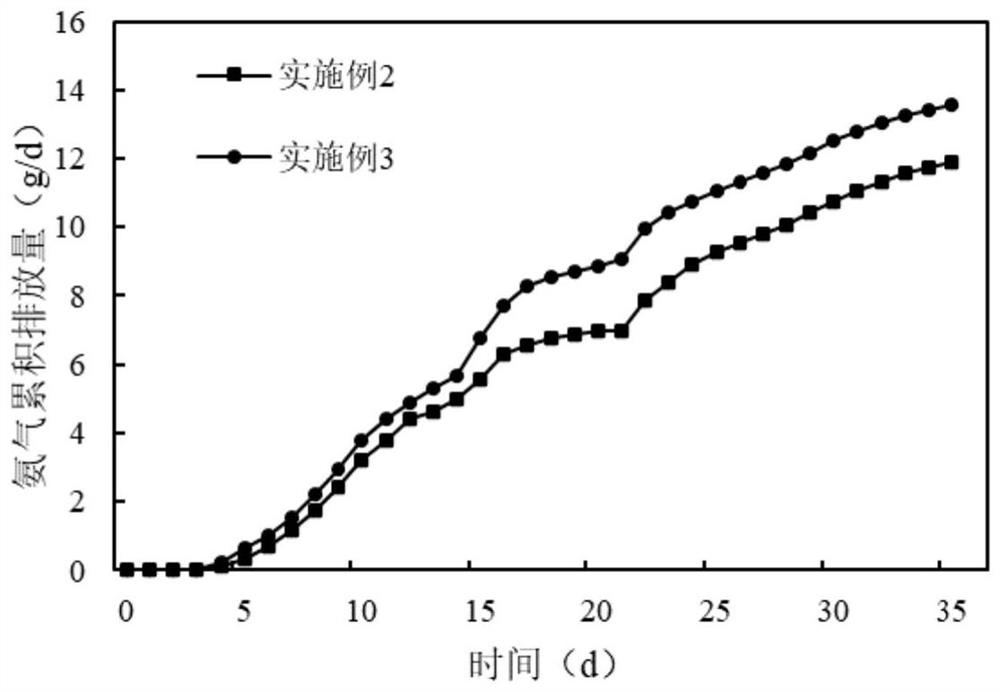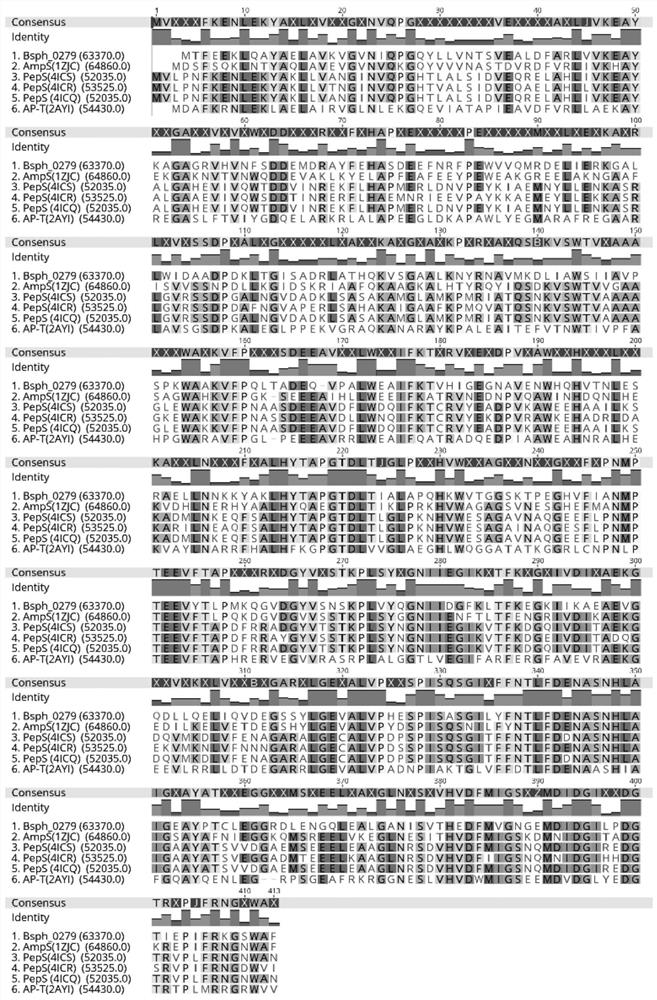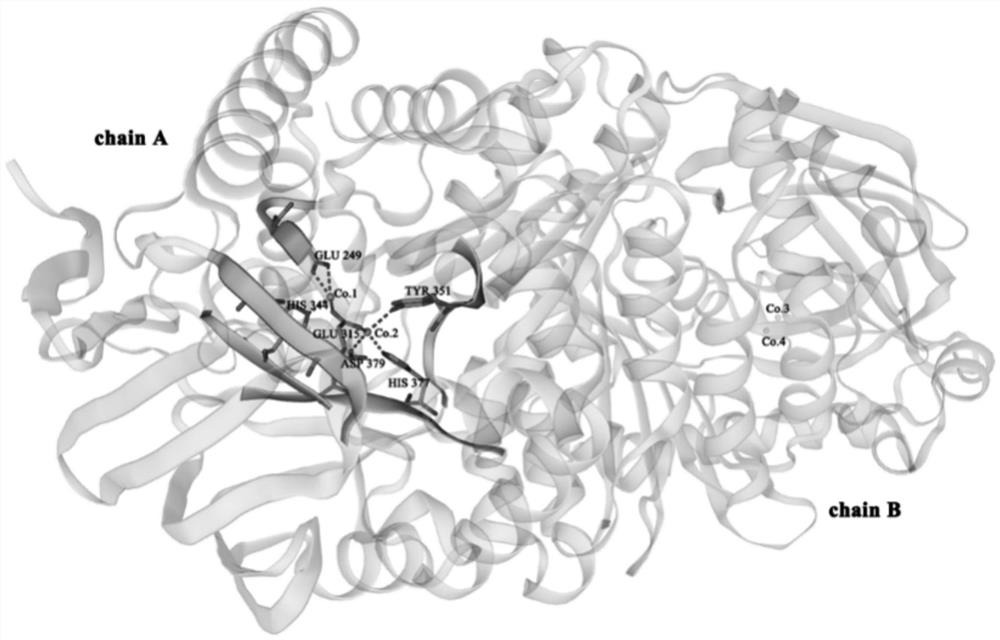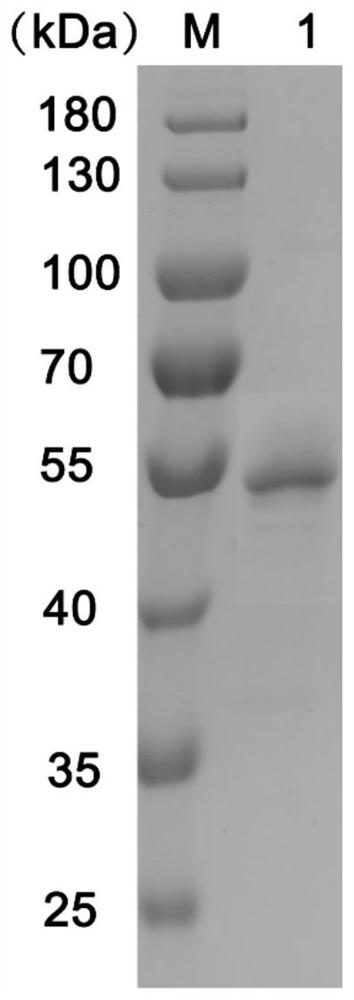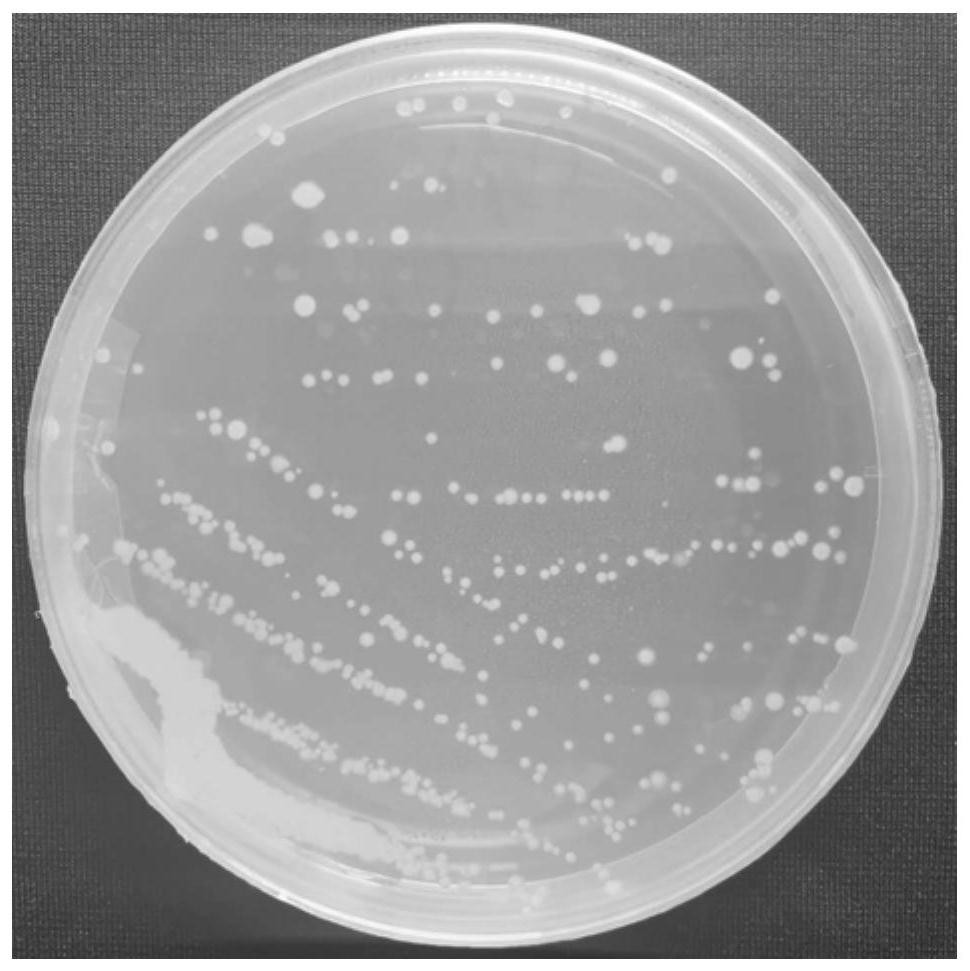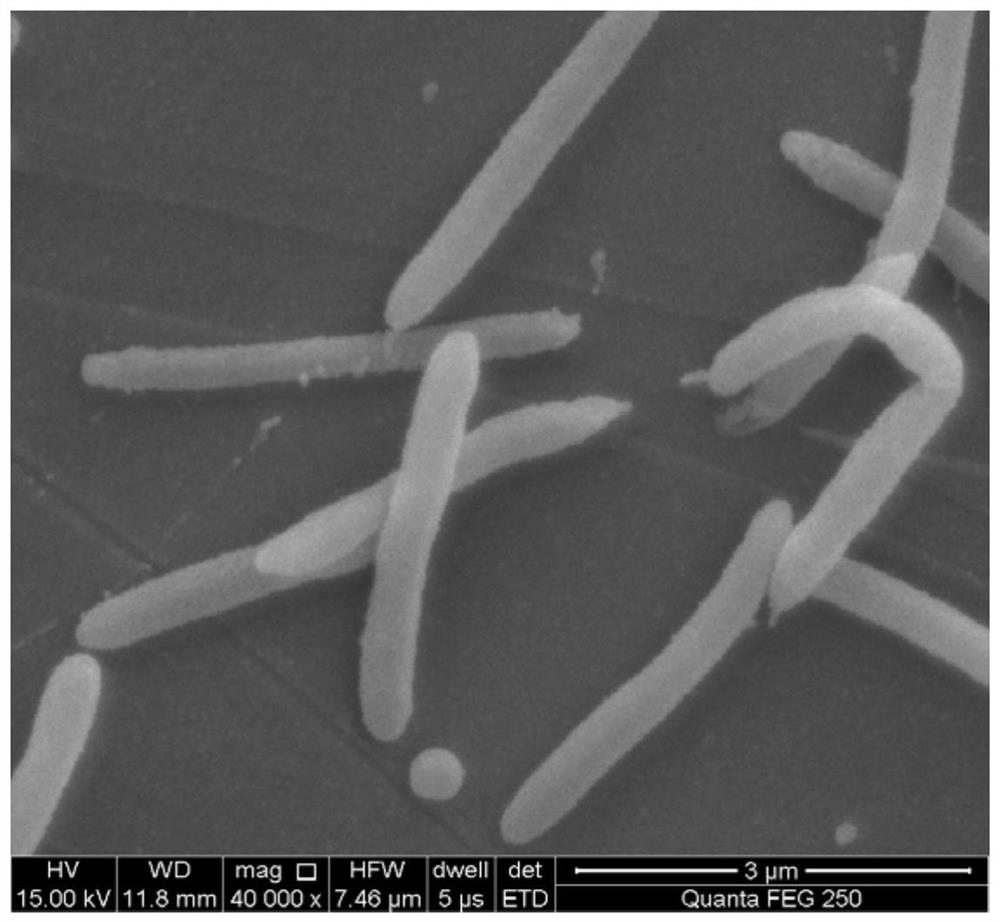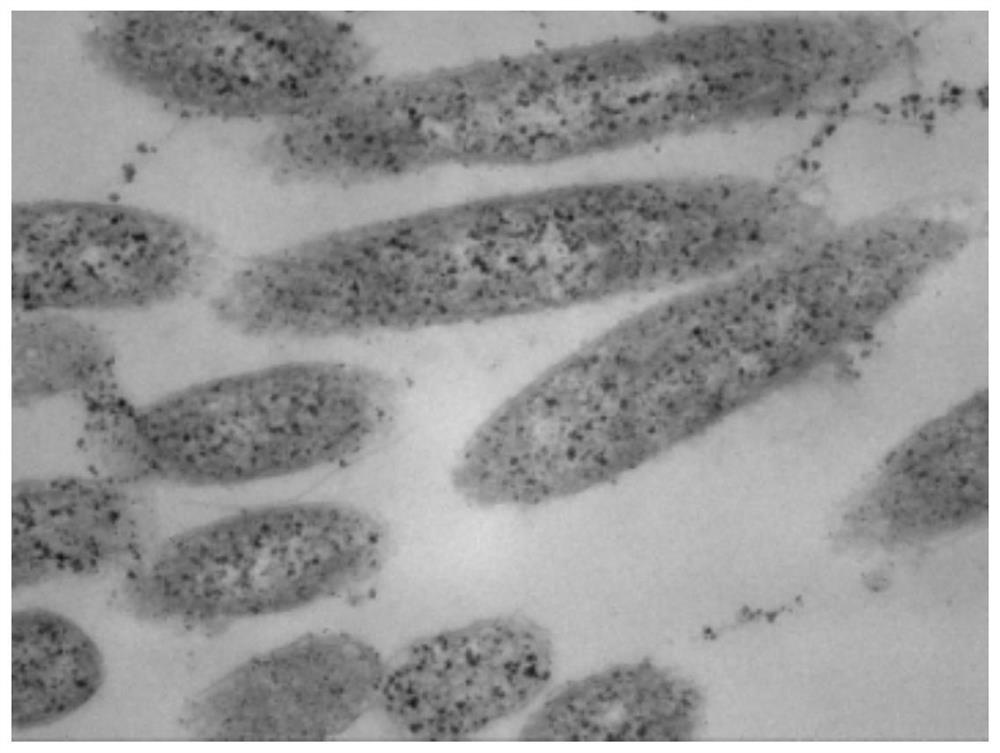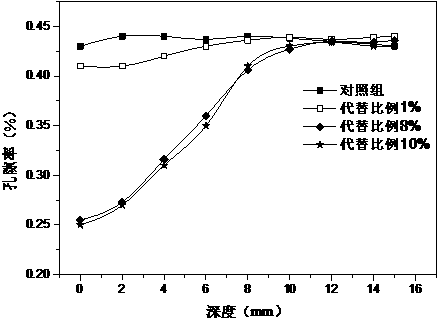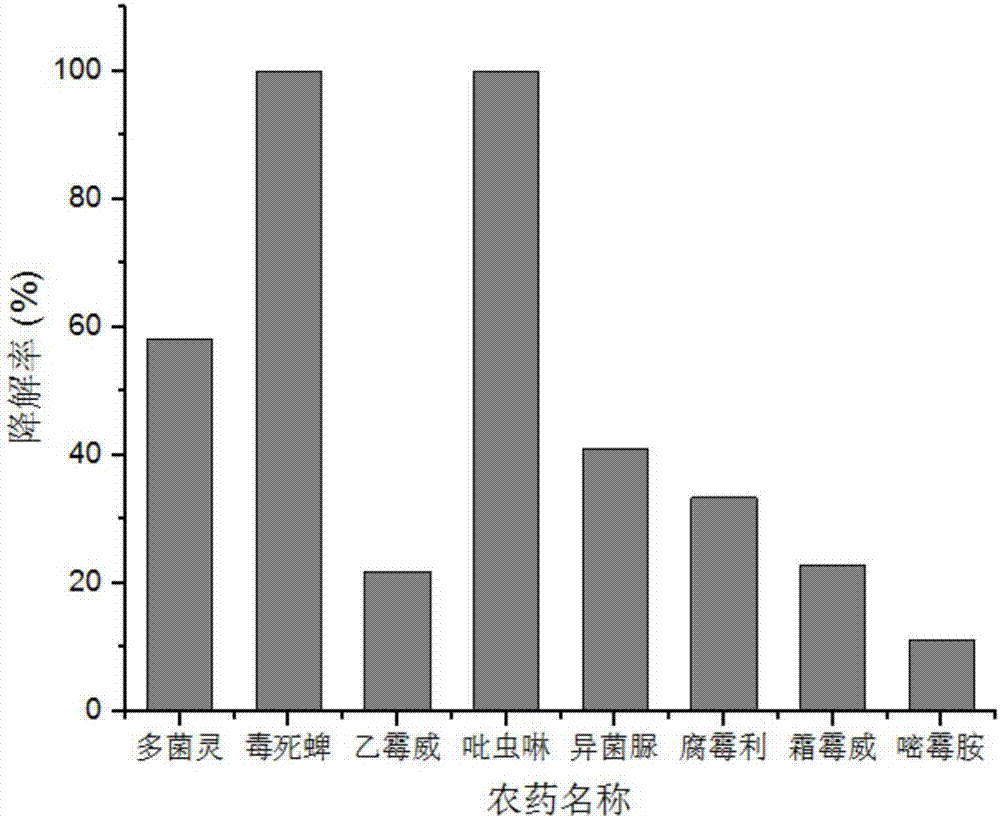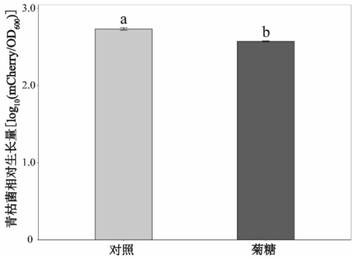Patents
Literature
90 results about "Lysinibacillus sp." patented technology
Efficacy Topic
Property
Owner
Technical Advancement
Application Domain
Technology Topic
Technology Field Word
Patent Country/Region
Patent Type
Patent Status
Application Year
Inventor
Lysinibacillus sphaericus (reclassified - previously known as Bacillus sphaericus) is a Gram-positive, mesophilic, rod-shaped bacterium commonly found on soil. It can form resistant endospores that are tolerant to high temperatures, chemicals and ultraviolet light and can remain viable for long periods of time.
Multifunctional microorganism soil repairing agent as well as preparation and application thereof
InactiveCN107988096APrevent degradationWide range of repairsBacteriaContaminated soil reclamationDiseaseBacillus licheniformis
The invention discloses a multifunctional microorganism soil repairing agent as well as preparation and application thereof and belongs to the fields of biological techniques and environment protection. The multifunctional microorganism soil repairing agent is made of the following raw materials in parts by weight through uniform mixing: 30-60 parts of nano chitosan, 10-20 parts of humic acid, 10-20 parts of nano charcoal and 20-30 parts of a composite microbial agent, wherein the composite microbial agent is prepared from fresh benzene bacillus, B.sonorensis, lysinibacillus sphaericus, bacillus licheniformis, bacillus circulans, bBacillus thuringiensis, achromobacter denitrificans, saccharothrix australiensis, Rhodococcus zopfii, pseudonocardia sulfidoxydans and pseudonocardia dioxanivorans through purification, optimization, fermentation and drying dehydration. The multifunctional microorganism soil repairing agent disclosed by the invention is capable of replacing conventional physical and chemical repairing techniques, is capable of degrading complex pollutants, is wide in repairing range, is capable of preventing soil degradation and inhibiting diseases and insects in environments, and has the advantages of being good in repairing treatment effect, low in cost and economic and environment-friendly.
Owner:厦门天邦润生物科技有限公司
Lysinibacillusfusiformis and method for degrading microcystis aeruginosa by using lysinibacillusfusiformis
ActiveCN102888354ALow costStrong targetingBacteriaMicroorganism based processesBiotechnologyMicroorganism
The invention discloses lysinibacillusfusiformis and a method for degrading microcystis aeruginosa by using lysinibacillusfusiformis, belongs to the technical field of environment friendliness and water treatment, provides algicidal bacteria TL which is suggested to be classified and named ysinibacillusfusiformis with the collection number CGMCC NO.6108, and also provides a method for degrading microcystis aeruginosa by using lysinibacillusfusiformis. The characteristics of the separated algae-lysing bacteria lysinibacillusfusiformis are exerted by a mode of indirectly dissolving algae by secreting extracellular non-protease algae-killing substances and a mode of directly dissolving algae by contacting algae cells, and the lysinibacillusfusiformis has high degradation rate of microcystis aeruginosa, and has wide application prospect in the aspect of preventing cyanobacterial bloom in which microcystis aeruginosa is used as preponderant algae by a microbiological method.
Owner:ANHUI HUANGHE WATER RESOURCE POLYTRON TECH INC
Lysinibacillus sp. Gy32 and application thereof
The invention discloses a Lysinibacillus sp. GY32 and the application thereof. The Lysinibacillus sp. GY32 is collected in the CCTCC (China Center for Type Culture Collection) on September 7, 2011, address: Wuhan University, Wuhan, China, and the collection number is CCTCC NO: M 2011307. The invention provides a new breed: Lysinibacillus sp. GY32, capable of degrading PolyBrominated Diphenyl Ethers BDE209, so that the degrading bacteria for managing the PolyBrominated Diphenyl Ethers BDE209 are provided.
Owner:GUANGDONG INST OF MICROBIOLOGY GUANGDONG DETECTION CENT OF MICROBIOLOGY +1
Application of Lysinibacillus sp Cr-6
InactiveCN103395893ASolve the problem of restoring technologyComplete restorationWater contaminantsContaminated soil reclamationMicroorganismEconomic benefits
The invention provides an application of Lysinibacillus sp Cr-6. The Lysinibacillus sp Cr-6 is used for reducing Cr6<+>, so as to reduce the Cr6<+> into Cr3<+>. In an anaerobic environment, the Lysinibacillus sp Cr-6 is used for reducing the Cr6<+> into Cr3<+>. When the pH value of the Lysinibacillus sp Cr-6 is 6-9, the Cr6<+> is reduced into Cr3<+>. Under the condition that Zn2<+> ions and Cu2<+> ions exist in the Lysinibacillus sp Cr-6, the Cr6<+> is reduced into Cr3<+>. The concentration of the Zn2<+> ions is 1-10mg / L; the concentration of the Cu2<+> ions is 1-20mg / L. According to the application of the Lysinibacillus sp Cr-6, the technical problem of reduction of hexavalent chromium in a natural environment is solved, so that a degrading bacterium for the reduction of the hexavalent chromium is provided. The Lysinibacillus sp Cr-6 is strong in survival ability, complete to degrade and short in required time; microorganisms are degraded completely. Thus, the Lysinibacillus sp Cr-6 has good social, ecological and economic benefits.
Owner:CHINA UNIV OF GEOSCIENCES (WUHAN)
Alkali-resistant compound microorganism pretreatment fungicide for pulping wheat straw and application of alkali-resistant compound microorganism pretreatment fungicide
ActiveCN113151098AEfficient degradationEmission reductionBacteriaPaper recyclingBiotechnologyCellulose
The invention relates to an alkali-resistant compound microorganism pretreatment fungicide for pulping wheat straw and application of the alkali-resistant compound microorganism pretreatment fungicide. The alkali-resistant compound microorganism pretreatment fungicide comprises bacillus licheniformis, alcaligenes faecalis, Lysinibacillus sp., bacillus subtilis and bacillus cereus, the mass ratio of all bacterial strains to bacterial liquid is (1-3): (1-3): (1-2): (1-3): (1-3), in biological pretreatment of wheat straw, all the bacterial strains are mutually beneficial, symbiotic and synergistic interaction is achieved, and the efficient degradation of cellulose, hemicellulose and lignin is jointly promoted. According to the method, the biological pretreatment chemical pulping method is adopted for pulping, and the alkali-resistant compound microorganism pretreatment fungicide is used for biological pretreatment pulping, so that the use of a large amount of chemical preparations is avoided, the discharge of wastewater in the traditional chemical pulping process is reduced, the production cost of an enterprise is reduced, and the method is advanced in technology and environment-friendly at the same time.
Owner:QILU UNIV OF TECH
Lysinibacillus fusiformis strain and use thereof
ActiveCN111893074APhosphorus dissolving effect is excellentEfficient separationBacteriaMicroorganism based processesMicroorganismGenus Lysinibacillus
The invention discloses a lysinibacillus fusiformis strain and use thereof. The lysinibacillus fusiformis strain is lysinibacillus, named after lysinibacillus fusiformis GZU-Lys01, and preserved in the Chinese typical culture preservation centre on December 31, 2019; and the preservation number is CCTCC NO:M20191140. The lysinibacillus fusiformis (Lysinibacillus fusiformis strain) GZU-Lys01 in theinvention can effectively dissociate difficultly dissolved and / or undissolved phosphorus, potassium, nitrogen and the like in coal gangue, and convert into nutritional components absorbed by plants,such as available phosphorus, rapidly available potassium and hydrolyzable nitrogen; particularly, the GZU-Lys01 can effectively convert difficultly dissolved phosphorus and / or undissolved phosphorusin the coal gangue into available phosphorus; simultaneously, the GZU-Lys01 also can effectively dissociate other phosphorus-containing minerals; when the GZU-Lys01 is used for preparing a coal ganguemicrobial fertilizer, other phosphorus-containing minerals can be doped properly; the phosphorus source for preparing the microbial fertilizer is increased; and, due to the GZU-Lys01 strain, coal gangue resource recycling becomes possible.
Owner:GUIZHOU UNIV +1
Degrading bacterium agent for kitchen waste treatment and application thereof
InactiveCN111548963AImprove biological activityImprove degradation rateFungiBio-organic fraction processingCelluloseBacillus licheniformis
The invention provides a degrading bacterium agent for kitchen waste treatment. The degrading bacterium agent is prepared from the following components in parts by weight: 20 to 30 parts of bacillus subtilis, 10 to 15 parts of lysine bacillus, 10 to 20 parts of bacillus licheniformis, 15 to 25 parts of trichoderma viride, 5 to 10 parts of candida glabrata, 5 to 10 parts of yersinia lipolytica and1 to 5 parts of a biological surfactant. The invention further provides an application of the degrading bacterium agent in kitchen waste integrated treatment equipment. The degradation microbial inoculum can rapidly decompose proteins, grease, starch polysaccharides, cellulose, hemicellulose and other macromolecular organic matters in the kitchen waste, so that the macromolecular organic matters are rapidly stabilized, the degradation efficiency of the kitchen waste is improved, the space utilization rate of a fermentation bin is further improved, and the quality of the kitchen waste degradation product organic fertilizer is improved.
Owner:中铁环境科技工程有限公司
Lysinibacillus fusiformis and application thereof in land reclamation and ecological reconstruction in mining area
ActiveCN108893421AIncrease biomassIncrease diversityBacteriaMicroorganism based processesCommunity structurePotassium
The invention discloses lysinibacillus fusiformis and an application thereof in land reclamation and ecological reconstruction in a mining area. The strain is the lysinibacillus fusiformis, and has acollection number of CGMCC No. 9799. The strain is capable of improving the nutrient content of land reclamation soil in the mining area, and has obvious effects for improving the content of organic matters, alkali-hydrolyzale nitrogen, rapidly available potassium and available phosphorus in the land reclamation soil in the mining area. Moreover, further experiments prove that, the lysinibacillusfusiformis is capable of further improving the biomass of crops, and for culture of wheat or oilseed rapes, the biomass of crops in the land reclamation soil in the mining area can be improved; particularly important, due to use of the lysinibacillus fusiformis, the community structure of soil microorganisms can be effectively and obviously changed, the microbial diversity of the soil is improved,and the quantity of microbes is effectively increased. Therefore, remediation of the microbial community in the soil is accelerated, and the lysinibacillus fusiformis can be widely applied to remediation of the land reclamation soil in the mining area.
Owner:SHANXI UNIV +1
Solid composite microbial inoculant for promoting aerobic composting of kitchen waste as well as preparation and application of solid composite microbial inoculant
InactiveCN113444657AGood for condensationPromote aromatizationBio-organic fraction processingBacteriaBacillus licheniformisLichen
The invention discloses a solid composite microbial inoculant for promoting aerobic composting of kitchen waste as well as preparation and application of solid composite microbial inoculant. The solid composite microbial inoculant is prepared from bacillus altitudinis, alcaligenes faecalis, lysinibacillus capsici, Bacillus velezensis, alcaligenes aquae, providencia, Bacillus paramycoides, bacillus licheniformis, bacillus thuringiensis, liquid culture media and bran. The solid-state microbial compound inoculant can shorten the temperature rise time of kitchen waste compost and prolong the high-temperature period time, so that the compost can quickly reach the thoroughly decomposed and harmless standards, and the condensation and aromatization of humus are promoted. In addition, the abundance of beneficial bacterium bacillus in the composting process of the kitchen waste is also remarkably improved.
Owner:EAST CHINA NORMAL UNIV
Bacterial strain for degrading dye with high efficiency
ActiveCN103937697APromote growthImprove environmental adaptabilityBacteriaMicroorganism based processesBiochemical engineeringDomestic technology
The invention discloses a bacterial strain for degrading dye with high efficiency. The bacterial strain is Lysinibacillussp ((i) Lysinibacillussp.( / i))FS1, and is preserved in the China Center for Type Culture Collection with the preservation number is CCTCC NO: M2013561 on Nov, 10th, 2013. The bacterial strain has the advantage of rapid growth and strong environment adaptability, has dye degradation capability with wide spectrum, and has good decolouring effect to a plurality of dyes, maximum decolourization percentage can be reached by culturing for 10 hours, the percent of decolourization can reach more than 90%, and the maximum decolouring concentration can reach 5000mg / L. The bacterial strain can be used for decolouring the printing and dyeing waste water and correlated dye waste water, can effectively avoid the dye molecules which are difficulty performed with natural degradation to directly enter in the water body for environment pollution, no secondary pollution is generated, and the bacterial strain has good ecology efficiency and application prospect. The Lysinibacillussp can be better used for degrading the dye, fills the blank of domestic technology, and provides a powerful technical base for solving the dye sewage treatment, especially the decolouring problem.
Owner:厦门众仁合美生物科技有限公司
Lysine bacillus for preventing and controlling kiwi berry canker and application thereof
InactiveCN107034167ASignificant effect on ulcersEnhanced inhibitory effectBiocideBacteriaActinidiaScreening method
The invention relates to the field of microbes, in particular to a lysine bacillus for preventing and controlling kiwi berry canker and application thereof. The preservation number of the lysine bacillus is CCTCC NO: M2016557. Pseudomonas is obtained from collected kiwi berry branches through separation and purification, a separating and screening method is simple, and the strain has the very strong inhibiting effect on pathogenic bacteria of bacterial kiwi berry canker. The strain SPANRS-213 is separated from healthy plant tissue, produced active metabolite has no obvious toxic effect on the plant tissue, the nature is stable, preparation is simple, spraying is convenient, the effect of preventing and controlling the kiwi berry canker is remarkable, an environment-friendly, simple and effective way is provided for prevention and control of the kiwi berry canker, and environmental protection is achieved.
Owner:四川省自然资源科学研究院
Lysinibacillus sp. and application thereof in pesticide degrading
ActiveCN106566793AEfficient degradationPromote degradationBacteriaMicroorganism based processesMicroorganismEcological environment
The invention discloses lysinibacillus sp., which is lysinibacillus sp.JX-5 (preservation number: CGMCC No.13142) preserved in the China General Microbiological Culture Collection Center. The lysinibacillus sp.JX-5 (preservation number: CGMCC No.13142) of the invention can effectively degrade pyrethriod pesticides and carbamate pesticides, can be used in bioremediation or biological purification of soil and water polluted by pyrethriod pesticides and carbamate pesticides, can protect the ecological environment, and has an excellent application prospect.
Owner:CHENGDU MEDICAL COLLEGE
Method for improving salt resistance of turf by adopting reinforced garbage compost microbial agent
InactiveCN104789494AImprove salt resistanceImprove salt toleranceBio-organic fraction processingFungiBiotechnologyAlkali soil
The invention discloses a method for improving the salt resistance of turf by adopting a reinforced garbage compost microbial agent. The reinforced salt resistant microbial agent comprises the following components: reinforced bacillus subtilis, reinforced lysine bacillus and reinforced penicillium chrysogenum, with the weight ratio of 1: 1: 1. The method disclosed by the invention adopts the following steps: gradually increasing the concentration of NaCl to reinforce microorganisms in urban garbage compost, and finally performing the screening so as to obtain the prepared reinforced salt resistant microbial agent. The obtained reinforced salt resistant microorganisms of the reinforced bacillus subtilis, the reinforced lysine bacillus and the reinforced penicillium chrysogenum are compounded into composite microbial agents in different concentrations, the composite microbial agents are inoculated to a planting system of the turf, so that the optimal concentration of the composite reinforced salt resistant microbial agent is screened out, the salt resistance of the turf is improved, and the technical support is provided for planting the carpet turf on the substrate of saline-alkali soil.
Owner:TIANJIN NORMAL UNIVERSITY
Boron-resistant lysinibacillus sp. with bacteriostatic ability and application of boron-resistant lysinibacillus sp.
ActiveCN113416670AGood antibacterial effectFast growthAntibacterial agentsBacteriaBiotechnologyEscherichia coli
The invention discloses a boron-resistant lysinibacillus sp. with bacteriostatic ability and application of the boron-resistant lysinibacillus sp.. The invention relates to a boron-resistant lysinibacillus sp. LBS-2018 with good bacteriostatic ability , which is preserved in the China Center for Type Culture Collection on December 17, 2020, and the preservation number is CGMCC No.21392. The invention also discloses an application of the boron-resistant lysinibacillus sp. LBS-2018 in preparation of a preparation for inhibiting escherichia coli, preferably an application of the boron-resistant lysinibacillus sp. LBS-2018 in preparation of a preparation for inhibiting drug-resistant escherichia coli. The LBS-2018 has a remarkable antibacterial effect on gram-negative bacteria (typically escherichia coli), particularly drug-resistant strains, the growth speed is higher than that of bacillus subtilis, and the drug-resistant bacteria are inhibited in a competitive mode. Compared with other boron-resistant lysinibacillus sp. strains, the boron-resistant lysinibacillus sp. strain disclosed in the invention has a stronger effect of inhibiting escherichia coli adhesion cells, and the inhibition rate is 61-81%.
Owner:JIANGSU ACADEMY OF AGRICULTURAL SCIENCES
Lysinibacillussphaericus and application thereof in preventing and controlling meloidogyne incognita
ActiveCN107460151AOvercoming environmental impactHigh application valueBiocidePlant growth regulatorsLaboratory culturePaenibacillus species
The invention discloses a lysinibacillussphaericus separated from tomato roots and an application thereof as a meloidogyne incognita biocontrol bacterium. The bacterial strain is identified as Lysinibacillussphaericus; the name of the bacterial strain is RQ11; the bacterial strain is collected at China General Microbiological Culture Collection Center; the collection number is CGMCC No.14201; the collection date is May 27th, 2017; and the bacterial strain has an excellent lethal property for the meloidogyne incognita and also can obviously promote the growth of the tomato. The lysinibacillussphaericus RQ11 bacterial strain acquired according to the invention is an endophytic bacterium colonized in the tomato roots, is difficult to be influenced by the outside environment and overcomes the environmental influence of soil change on the biocontrol bacterium. The RQ11 has higher application value at the aspect of preventing and controlling the meloidogyne incognita, especially is the endophytic bacterium of tomato and is capable of continuously acting on the meloidogyne incognita, so that the defect of low effect or instability caused by a general biocontrol bacterium incapable of colonizing in the root can be overcome.
Owner:宁夏鲲雨肥业有限公司
Preparation method and application of cement-based material additive
ActiveCN111718144ARealize intelligent crackingReduce dosageCalcium/strontium/barium carbonatesBiotechnologySodium bicarbonate
The invention discloses a preparation method and application of a cement-based material additive. The preparation method comprises the following steps: preparing a calcium chloride solution and a sodium bicarbonate solution with equal mass to prepare porous calcium carbonate microspheres; inoculating bacillus lysine into a culture medium, and adding a spore efficient transforming agent into a culture solution; putting the calcium carbonate microspheres into a lysine bacillus spore culture solution, and fully standing until the concentration of the spore culture solution tends to be stable so as to obtain calcium carbonate microspheres loaded with microbial spores; dissolving the calcium carbonate microspheres loaded with the microbial spores into a mixed solution of sodium alginate and barium silver, uniformly stirring, and coating the surface layers of the calcium carbonate microspheres through spray drying. Results show that the cement-based material additive prepared by the method is suitable for maritime work environments, can effectively fill and block cracks of cement-based materials, improves the durability of engineering and prolongs the service life of the engineering.
Owner:JIANGSU UNIV OF SCI & TECH
Lysinibacillus and application thereof in degrading of zearalenone
The present invention pertains to the field of microorganisms and feed additives, and discloses a lysinibacillus macroides microorganism capable of degrading zearalenone. The microorganism is obtained from chicken gastrointestinal content by toxin domestication, gradient dilution and separation, and screening. The strain is identified as the lysinibacillus macroides microorganism, can degrade the zearalenone efficiently, and has good application prospects in the development of new biodegradable bacteria agents and biodegradable sterile preparations.
Owner:FEED RESEARCH INSTITUTE CHINESE ACADEMY OF AGRICULTURAL SCIENCES
Method for improving protective enzyme activities of salt-stressed turfgrass by adopting enhanced salt-tolerant microbial agent
InactiveCN104726378AImprove salt toleranceHarm mitigationBiocidePlant growth regulatorsBiotechnologyMicrobial agent
The invention discloses a method for improving protective enzyme activities of salt-stressed turfgrass by adopting an enhanced salt-tolerant microbial agent. The enhanced salt-tolerant microbial agent comprises enhanced bacillus subtilis, enhanced lysine bacillus and enhanced penicillium chrysogenum in a weight part ratio of 1 to 1 to 1, wherein enhanced bacillus subtilis, enhanced lysine bacillus and enhanced penicillium chrysogenum are salt-tolerant mixed microbial flora obtained by carrying out domestication step by step with a method for increasing the salt concentration step by step. The invention further discloses an application of the enhanced salt-tolerant microbial agent in improvement of the protective enzyme activities of salt-stressed turfgrass festuca arundinacea L. Experimental results show that the compound enhanced microbial agent can conduce to effectively alleviating the harms of saline-alkali soil to the turfgrass; screening and culturing corresponding enhanced salt-tolerant compost microbial strains and carrying out artificial inoculation is a new way for improving the salt tolerance of the turfgrass.
Owner:TIANJIN NORMAL UNIVERSITY
Method for preparing and regenerating lysine bacillus protoplast capable of degrading MC-LR
ActiveCN103013848AHigh preparation rateHigh activityBacteriaMicroorganism based processesBacillus sphaericusProtoplast
The invention discloses a method for preparing and regenerating a lysine bacillus protoplast capable of degrading MC-LR and relates to the technical field of methods for preparing and regenerating protoplasts in bioengineering. According to the method, the protoplast fusion technology for establishing engineering bacteria is taken as the basis, and the lysine bacillus protoplast is prepared from the separated MC-LR high-efficiency degrading bacteria T1(Bacillus sphaericus) protoplast. According to the research, an inactivated protoplast fusion method is selected, so that the workload is reduced, and the quality of a fusant in the subsequent research is guaranteed. The method for preparing and regenerating the protoplast is simple in process, convenient to operate and high in repeatability; and the obtained protoplast preparation rate can be up to 96.64 percent, the regeneration rate can be 83.95 percent, the protoplast is high in preparation rate and high in activity, and the preparation and regeneration of the subsequent fusant are facilitated.
Owner:安徽水韵环保股份有限公司
Lysinibacillus sp. and application thereof, degumming auxiliary containing lysinibacillus sp. and preparation method of degumming auxiliary
InactiveCN105567605AAvoid large areas of growthQuality assuranceBacteriaMicroorganism based processesMicroorganismMicrobiology
The invention discloses lysinibacillus sp. and application thereof, a degumming auxiliary containing lysinibacillus sp. and a preparation method of the degumming auxiliary, belongs to the technical field of hemp degumming, and aims at solving the problems that in existing hemp rain and dew degumming, the consumed time is long, and the fiber damage is big. The lysinibacillus sp. Z39ay1 is preserved in the China General Microbiological Culture Collection Center, the preservation address is No.3 room, No.1 yard, beichen west road, Chaoyang District, Beijing, the preservation date is December 20, 2011, and the preservation number is CGMCC No.5618. The preparation method comprises the steps that 1, lysinibacillus sp. dqly-2 and colletotrichum dematium are picked to be cultured separately to obtain first-level seed solutions; 2, the seed solutions are cultured separately to obtain two fermentation solutions; 3, the two fermentation solutions are mixed, and tap water of which the volume is 5-8 times of that of the fermentation solutions is added. The degumming auxiliary is applied to hemp rain and dew degumming. Accordingly, the advantages of being low in cost, capable of rapidly achieving the effects, free of pollution and the like are achieved, the progress of hemp rain and dew degumming is accelerated, the quality of hemp fiber is improved, and the yield of the hemp fiber is increased.
Owner:DAQING BRANCH OF HEILONGJIANG ACAD OF SCI
Method for synthesizing selenium and bismuth selenide nano material by using lysinibacillus sp.
ActiveCN105441489AShape is easy to controlEasy to operateMicroorganism based processesFermentationHigh pressureLysinibacillus sp.
The invention relates to a method for synthesizing selenium and a bismuth selenide nano material by using lysinibacillus sp.ZYM-1. The method comprises the following steps: adding 0.5-25mM of sodium selenite into an LB culture medium subjected to high-temperature sterilization at 121 DEG C, inoculating ZYM-1, and culturing for 24-48h under the condition that the temperature is 25-40 DEG C, the pH value is 5-9 and the speed is 50-300rpm to obtain a red electroselenium nano material; and adding 0.5-25mM of sodium selenite and 0.1-5mM of bismuth nitrate solution into the LB culture medium subjected to high-temperature sterilization at 121 DEG C, inoculating ZYM-1, and culturing for 24-48h under the condition that the temperature is 25-40 DEG C, the pH value is 5-9 and the speed is 50-300rpm to obtain a black bismuth selenide nano material. The reaction is carried out in aqueous solution without severe conditions of high temperature, high pressure and the like, so that cultivation can be enlarged easily. The prepared selenium nano spheres can be applied to adsorption removal of heavy metals, and biosynthesis of the prepared bismuth selenide nano material is not reported at present.
Owner:DALIAN UNIV OF TECH
Lysinibacillus sp. With high caproic acid yield and application thereof
ActiveCN114276948AGood caproic acid production performanceOrderly rowsBacteriaAlcoholic beverage preparationBiotechnologyEthyl acetate
The invention belongs to the technical field of wine brewing, and particularly relates to lysine bacillus with high caproic acid yield and application thereof. Aiming at the problems of small quantity of degraded pit mud caproic acid bacteria, low acid production capacity and poor basic wine quality, the invention provides the lysine bacillus GJ-1 with high caproic acid yield, and the preservation number of the lysine bacillus GJ-1 is CCTCC NO: M 2020935. The lysinibacillus sp. GJ-1 bacterial liquid cultured by the method is stable in quality, is used for pit maintenance, and can effectively increase the number of bacteria and bacillus in pit mud, so that the maintained pit mud is soft, ripe and gas-soaked, and has rich pit mud composite fragrance; the contents of ethyl hexanoate, ethyl acetate, total ester, hexanoic acid and butyric acid in the basic wine produced by the maintained cellar are remarkably increased, the content of ethyl lactate is remarkably reduced, and the wine body is rich in cellar fragrance, harmonious in fragrance and better in wine quality.
Owner:LUZHOU LAOJIAO CO LTD +1
Lysinibacillus S12 and application thereof
ActiveCN110713956AIncrease productionThe total quality of the entity is highBacteriaMicroorganism based processesBiotechnologySocial benefits
The invention discloses a lysinibacillus S12 and application thereof, and relates to the biotechnology field of edible fungi. The classification and the naming of the lysinibacillus S12 is (Lysinibacillus sp.) S12, the lysinibacillus S12 is collected in the China Center for Type Culture Collection, wherein a collection number is CCTCC NO: M 2019713, a collection date is 11th, September, 2019, anda collection address is Wuhan University, Wuhan, China. The lysinibacillus S12 disclosed by the invention is applied to agaricus bisporus growth, agaricus bisporus hyphae can be effectively accelerated to grow, the production period of the agaricus bisporus is shortened, the yield of the agaricus bisporus is improved, a product is guaranteed to be environmentally-friendly, healthy and pollution-free and is non-toxic and harmless, and the economic and social benefit of edible fungi production can be improved.
Owner:青岛润博特生物科技有限公司
Lysinibacillus sp. for controlling plant nematodes and application thereof
ActiveCN108676762AHigh poisonous activityEnhanced inhibitory effectBiocideBacteriaPlant nematodeMeloidogyne incognita
The invention discloses lysine bacillus for controlling plant nematodes and application thereof. The name of the lysinibacillus sp. is BDGS-17-07; the collection number is CGMCC No.15617. Experimentalresults prove that the lysinibacillus sp. has the advantages that a fermenting liquid BDGS-17-07 has toxic activity on second instar larvae of cereal cyst nematodes, and eggs and second instar larvaeof meloidogyne incognita, and also has obvious inhibiting function on the hatching of egg particles and egg masses of the meloidogyne incognita; the fermenting liquid BDGS-17-07 also has good biological preventing effect; the preventing effect can reach 36% 60 days after the nematodes are inoculated by only applying 50mL of fermenting liquid BDGS-17-07; when the lysinibacillus sp. BDGS-17-07 (CGMCC No.15617) provided by the invention is used as the biological agent, the biological agent has good application and development prospect in the preventing and control of the plant nematodes.
Owner:CHINA AGRI UNIV
Method for strengthening aerobic fermentation of kitchen waste by using oil-removing microbial preparation
ActiveCN114014701AImprove reusabilityPromote productionBio-organic fraction processingBacteriaBacillus licheniformisOil and grease
The invention discloses a method for strengthening aerobic fermentation of kitchen waste by using an oil-removing microbial preparation, and belongs to the field of kitchen waste recovery. According to the method, the kitchen waste is treated by using a compound microbial agent containing lysinibacillus, bacillus hirsuti and bacillus licheniformis. The method comprises the following steps: performing pretreatment such as draining and crushing on kitchen waste, mixing the kitchen waste with corn straw and a compound microbial agent to obtain a fermentation raw material, and performing aerobic fermentation in a reactor without heating and stirring treatment to obtain the organic fertilizer. On one hand, due to the use of the grease degrading bacterial agent, degradation of grease and other organic matters is promoted, generation of organic acid in the earlier stage of composting is improved, ammonia gas emission and nitrogen loss can be reduced in the treatment process, the composting quality is higher, the seed germination index is better, and the prepared fertilizer meets the organic fertilizer standard; on the other hand, ammonia gas in the composting process is reduced, secondary pollution can be reduced, and the method is more environment-friendly.
Owner:JIANGNAN UNIV
Aminopeptidase Amp0279 sourced from lysinibacillus sphaericus C3-41 as well as recombinant strain and application of aminopeptidase Amp0279
The invention discloses a gene of aminopeptidase Amp0279 from lysinibacillus sphaericus C3-41 and an amino acid sequence of the aminopeptidase Amp0279, and constructs a recombinant plasmid containing an encoding gene of the aminopeptidase Amp0279, recombinant escherichia coli BL21 (pET28a-amp0279) and recombinant bacillus subtilis WB800N (pHT43-amp0279). The enzyme is subjected to heterologous expression in escherichia coli, the enzyme is purified by a nickel column affinity chromatography method, and the enzymatic property of purified protein is detected by taking Leu-pNA as a substrate. The optimum reaction conditions of the aminopeptidase Amp0279 provided by the invention are as follows: the temperature is 50 DEG C, the pH is 8.0, the enzyme activity is stable in the range of 40-55 DEG C and the pH is 6.0-9.0, the specific enzyme activity can reach 35383 U / mg after 100 [mu]M Co<2+> is added, and the aminopeptidase Amp0279 is suitable for the industrial fields of feeds, foods, brewing, medicines and the like.
Owner:SOUTH CENTRAL UNIVERSITY FOR NATIONALITIES
Lysinibacillus macrolides, microbial agent, biocontrol agent and preparation method and application thereof
ActiveCN111763646AGood control of plant root-knot nematode activityPromote growthPlant growth regulatorsBiocideBiotechnologyPlant nematode
The invention discloses Lysinibacillus macrolides, a microbial agent, a biocontrol agent and a preparation method and application thereof, and the strain is identified as Lysinibacillus macrolides with the strain name of C1. The strain is preserved in the China General Microbiological Culture Collection Center (CGMCC), the preservation number is CGMCC No.18349, and the preservation date is July 29, 2019. The Lysinibacillus macrolides provided by the invention is a novel Lysinibacillus macrolides C1, and the Lysinibacillus macrolides C1 has good activity of preventing and treating plant root-knot nematodes and lays a foundation for research and development of biological prevention and treatment of the plant root-knot nematodes. Moreover, the strain has a good characteristic of promoting crop growth, and provides a basis for the application of microbial fertilizers.
Owner:HUNAN PLANT PROTECTION INST
Marine concrete reinforcing material as well as preparation method and application thereof
InactiveCN111592258ARealize intelligent crackingReduce dosageCalcium/strontium/barium carbonatesSodium bicarbonateMicrosphere
The invention discloses a marine concrete reinforcing material as well as a preparation method and application thereof. The preparation method comprises the following steps: preparing a calcium chloride solution and a sodium bicarbonate solution with equal mole to prepare porous calcium carbonate microspheres; inoculating lysinibacillus sp. into a culture medium, and adding a spore efficient transforming agent into a culture solution; putting the calcium carbonate microspheres into the lysinibacillus sp. spore culture solution, and fully standing until the concentration of the spore culture solution tends to be stable, so as to obtain calcium carbonate microspheres loaded with microbial spores; dissolving the calcium carbonate microspheres loaded with the microbial spores into a mixed solution of sodium alginate and a barium-silver compound, uniformly stirring, and coating the surface layers of the calcium carbonate microspheres through spray drying. Results show that the material canachieve concrete surface pore filling and plugging, improve compactness, prevent invasion of corrosive substances, improve engineering durability and prolong the service lifetime.
Owner:JIANGSU UNIV OF SCI & TECH
Extended Lysinibacillus macroides strain, enzyme preparation and application of extended Lysinibacillus macroides strain and enzyme preparation in degradation of pesticide residues.
InactiveCN107446853AAchieve the effect of removing pesticide residuesPotential for applicationBacteriaMicroorganism based processesLysinibacillus macroidesChlorpyrifos
The invention discloses an extended Lysinibacillus macroides strain, an enzyme preparation and application of the extended Lysinibacillus macroides strain and the enzyme preparation in the degradation of pesticide residues. The preservation number of the provided extended Lysinibacillus macroides FY-3 strain is CGMCC No.13519. The invention further provides a method for screening, inducing and domesticating the strain and preparing active enzyme for degrading the pesticide residues. The method comprises the following steps: screening target bacteria by taking chlorpyrifos as a carbon source, and inducing and domesticating the target bacteria in a single pesticide or a mixed pesticide; and fermenting the strain, collecting a thallus, and carrying out cell breaking and centrifugation, and collecting supernate, so as to obtain the enzyme preparation for degrading the pesticide residues. The extended Lysinibacillus macroides strain and the enzyme preparation can be used for degrading pesticide residues in vegetables and fruits and have application potentiality in the degradation of the pesticide residues in the vegetables and the fruits.
Owner:侨康生物科技(广东)有限公司
Application of synanthrin and beneficial bacteria in preventing and controlling tomato soil-borne bacterial wilt
ActiveCN112400899APromote growthPromotes antagonistic competitivenessBiocideBacteriaBiotechnologyMicroorganism
The invention discloses application of synanthrin and beneficial bacteria in preventing and controlling tomato soil-borne bacterial wilt. The synanthrin and the beneficial bacteria are applied to soilby adopting a root irrigation method; wherein the beneficial bacteria are strains NJHR92, are classified and named as Lysinibacillus sphaericus, and are preserved in the China General MicrobiologicalCulture Collection Center on September 26, 2012, the preservation unit address is Beijing Datun Road, Chaoyang District, China General Microbiological Culture Collection Center, and the strain preservation number is CGMCC No. 6629. The beneficial bacteria and the synanthrin are simultaneously applied in a resource regulation and control mode, and the synanthrin is used as a resource substance, sothat the growth and antagonistic competitive capacity of the beneficial bacteria can be promoted, and the inhibition capacity of the beneficial bacteria on ralstonia solanacearum can be remarkably improved, thereby reducing the incidence rate of tomato bacterial wilt and preventing and controlling tomato soil-borne diseases.
Owner:NANJING AGRICULTURAL UNIVERSITY
Features
- R&D
- Intellectual Property
- Life Sciences
- Materials
- Tech Scout
Why Patsnap Eureka
- Unparalleled Data Quality
- Higher Quality Content
- 60% Fewer Hallucinations
Social media
Patsnap Eureka Blog
Learn More Browse by: Latest US Patents, China's latest patents, Technical Efficacy Thesaurus, Application Domain, Technology Topic, Popular Technical Reports.
© 2025 PatSnap. All rights reserved.Legal|Privacy policy|Modern Slavery Act Transparency Statement|Sitemap|About US| Contact US: help@patsnap.com
